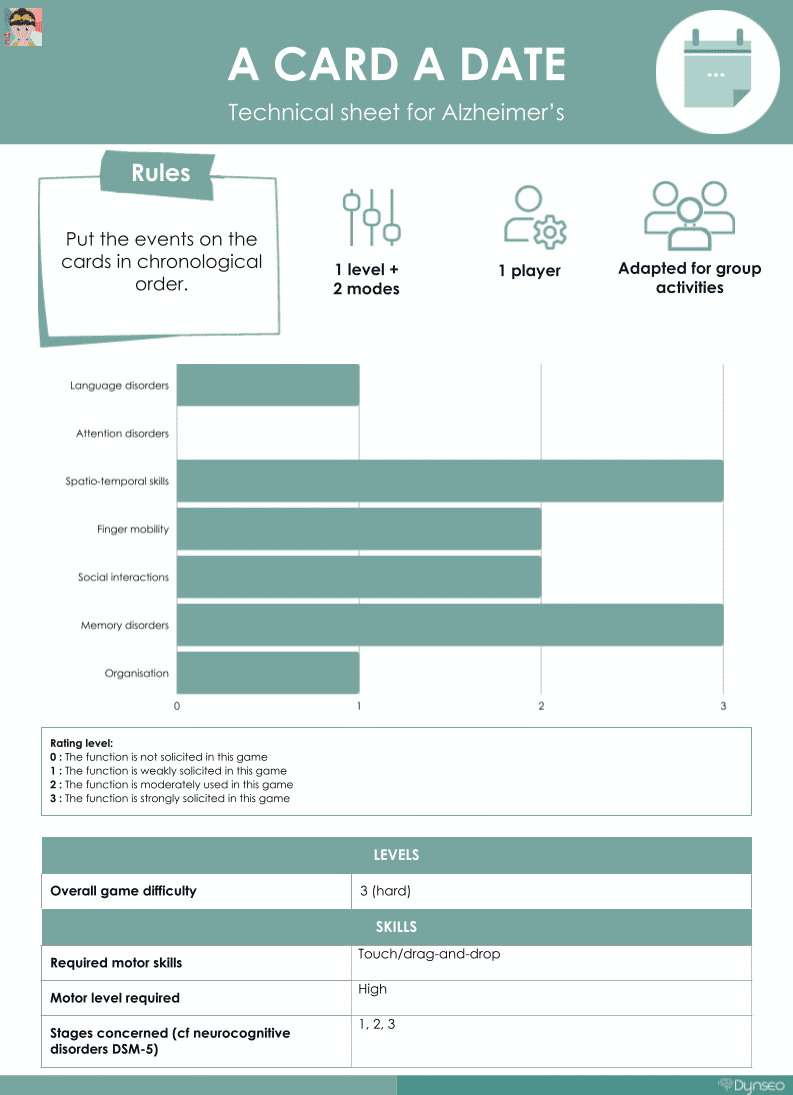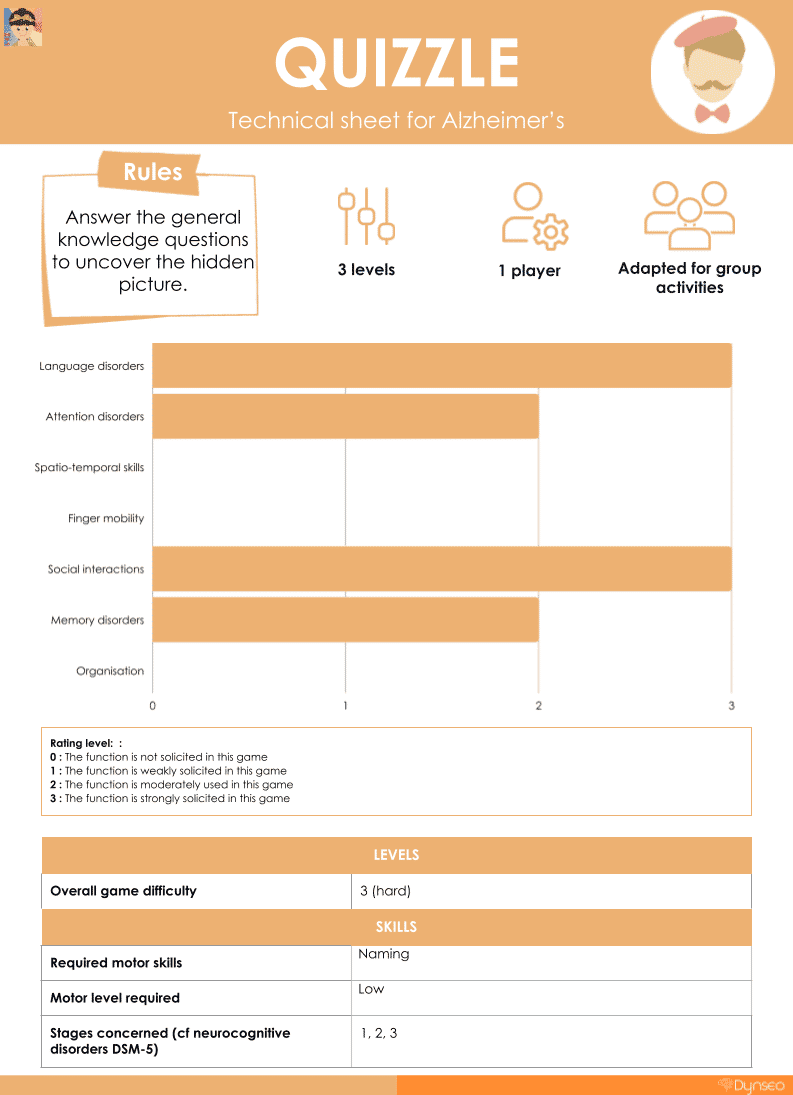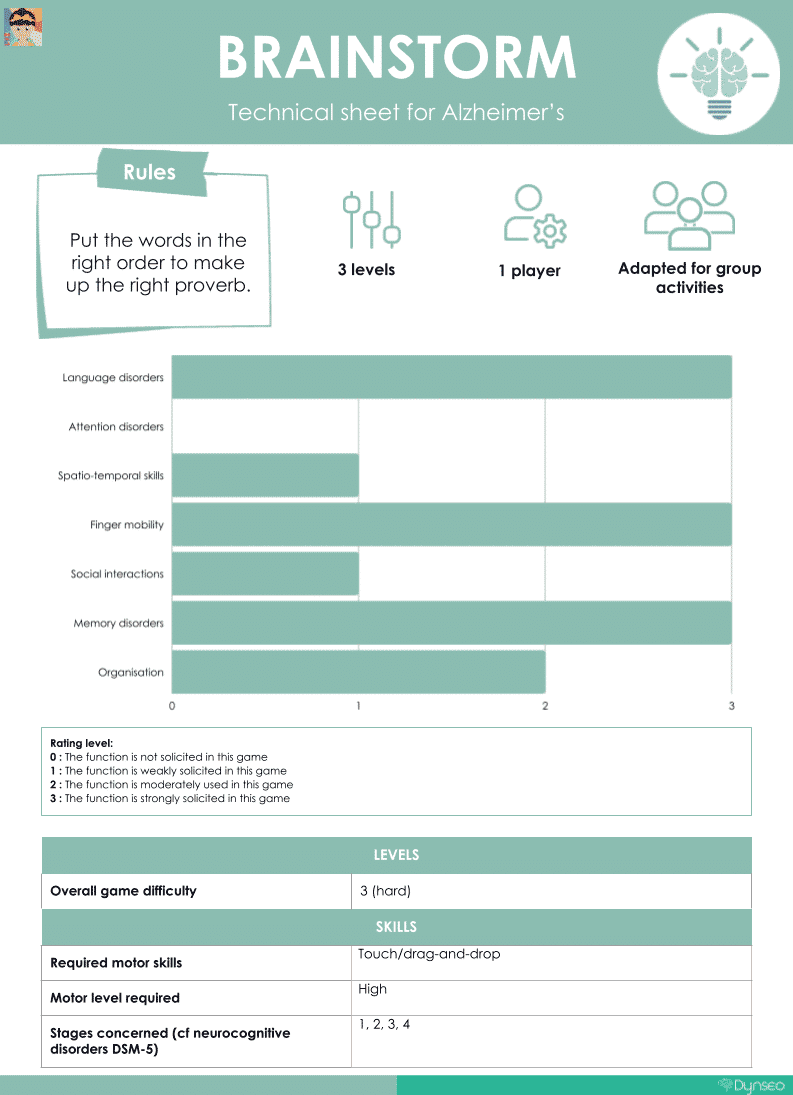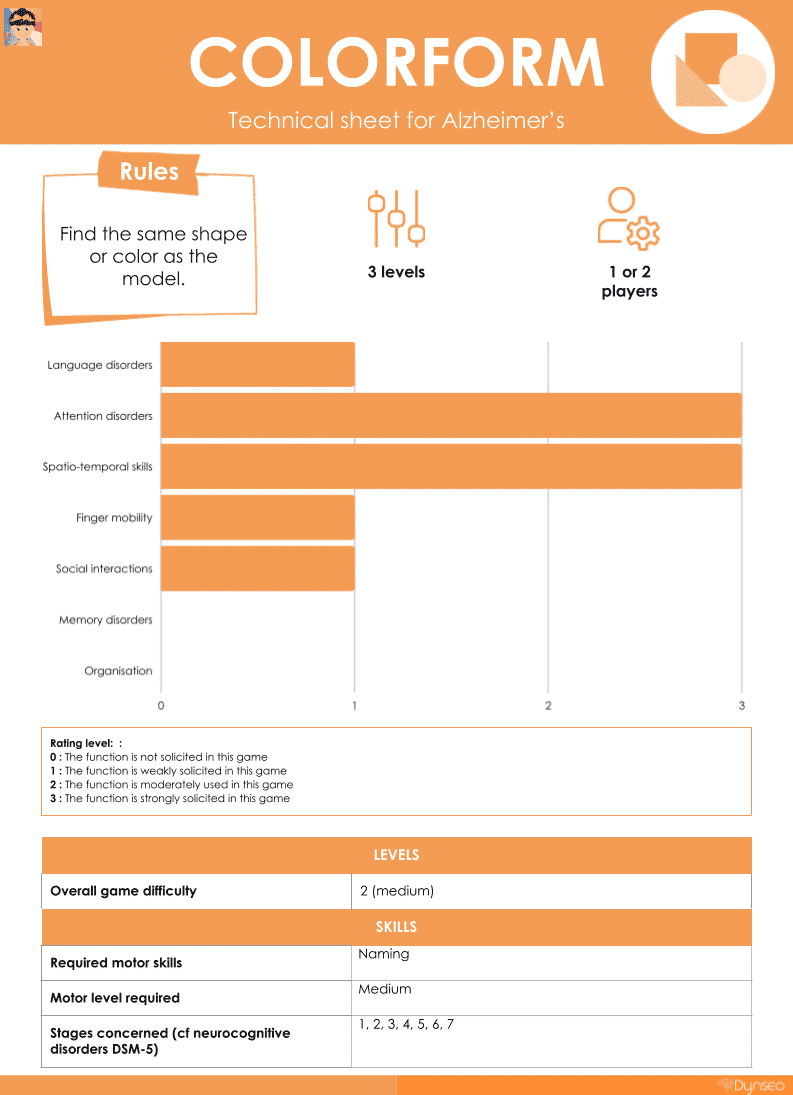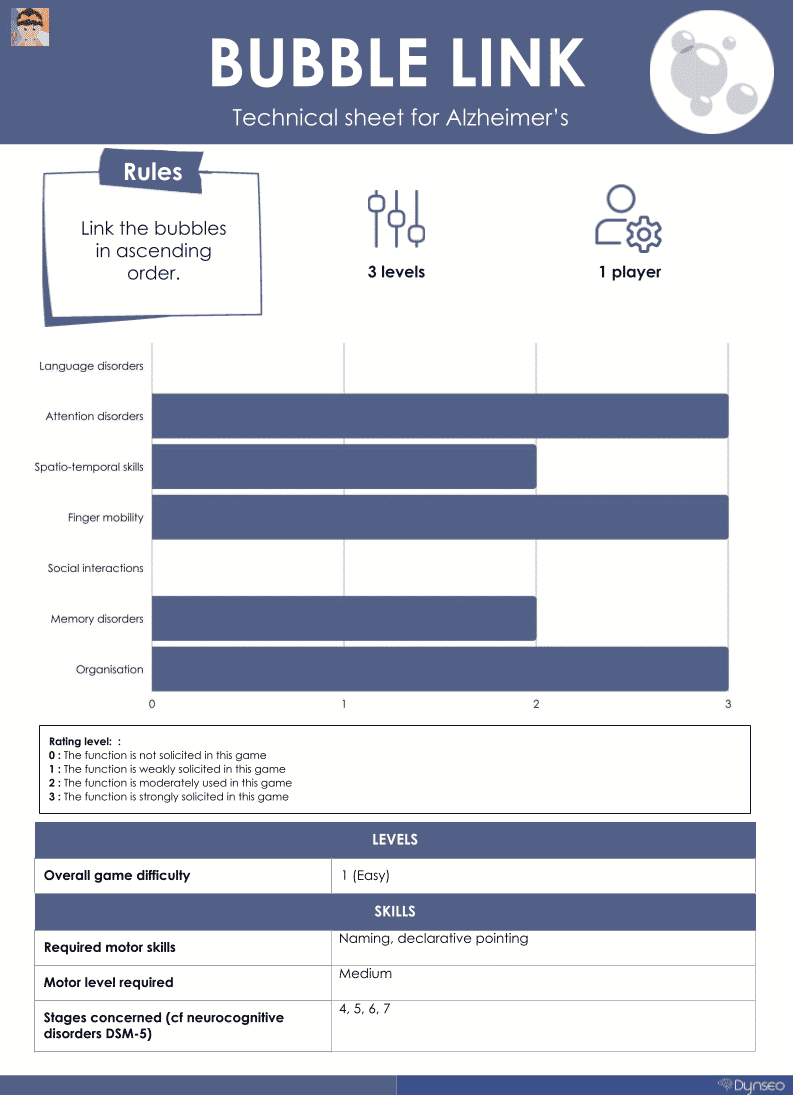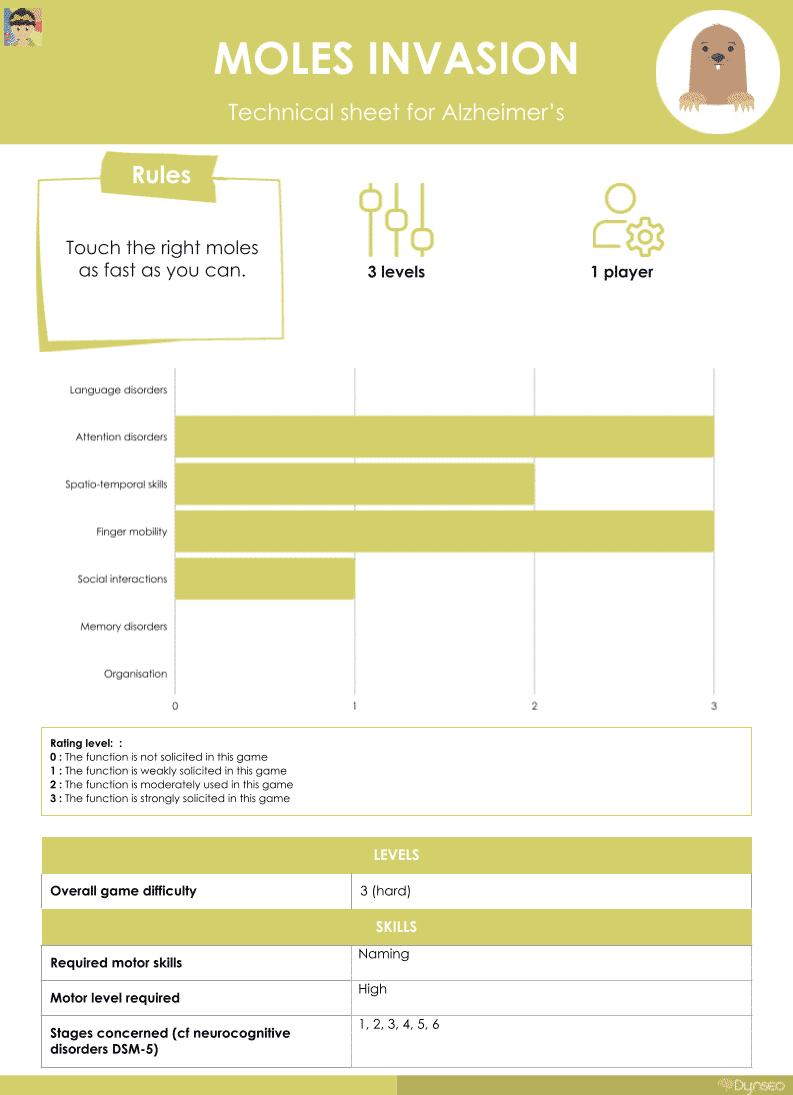In this guide, we will detail how SCARLETT can be used for supporting someone with Alzheimer’s. SCARLETT is a cognitive stimulation tool that is particularly suitable for them, as the activities are of a very easy level, and there is no score or timer. In addition to the cognitive stimulation provided, SCARLETT is a unifying program, which will allow you to create a link and share a good time.
This program is used both at home with its caregiver, the ESA team, with a health professional: speech therapist, geriatrician, neuropsychologist or occupational therapist, or finally in a nursing home. The program works without wifi, so you can take it with you wherever you go.
Dynseo proposes
ALZHEIMER’S DISEASE with SCARLETT

Memory
Forgetting words
Forgetting events
Memory disorders
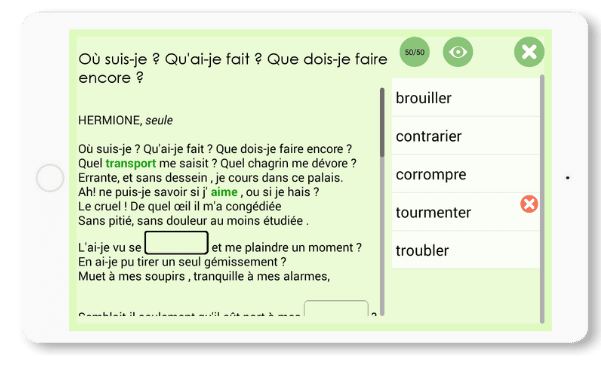
Cognitive functions
Slowing of thought
Organization difficulties
Temporo-spatial disorientation
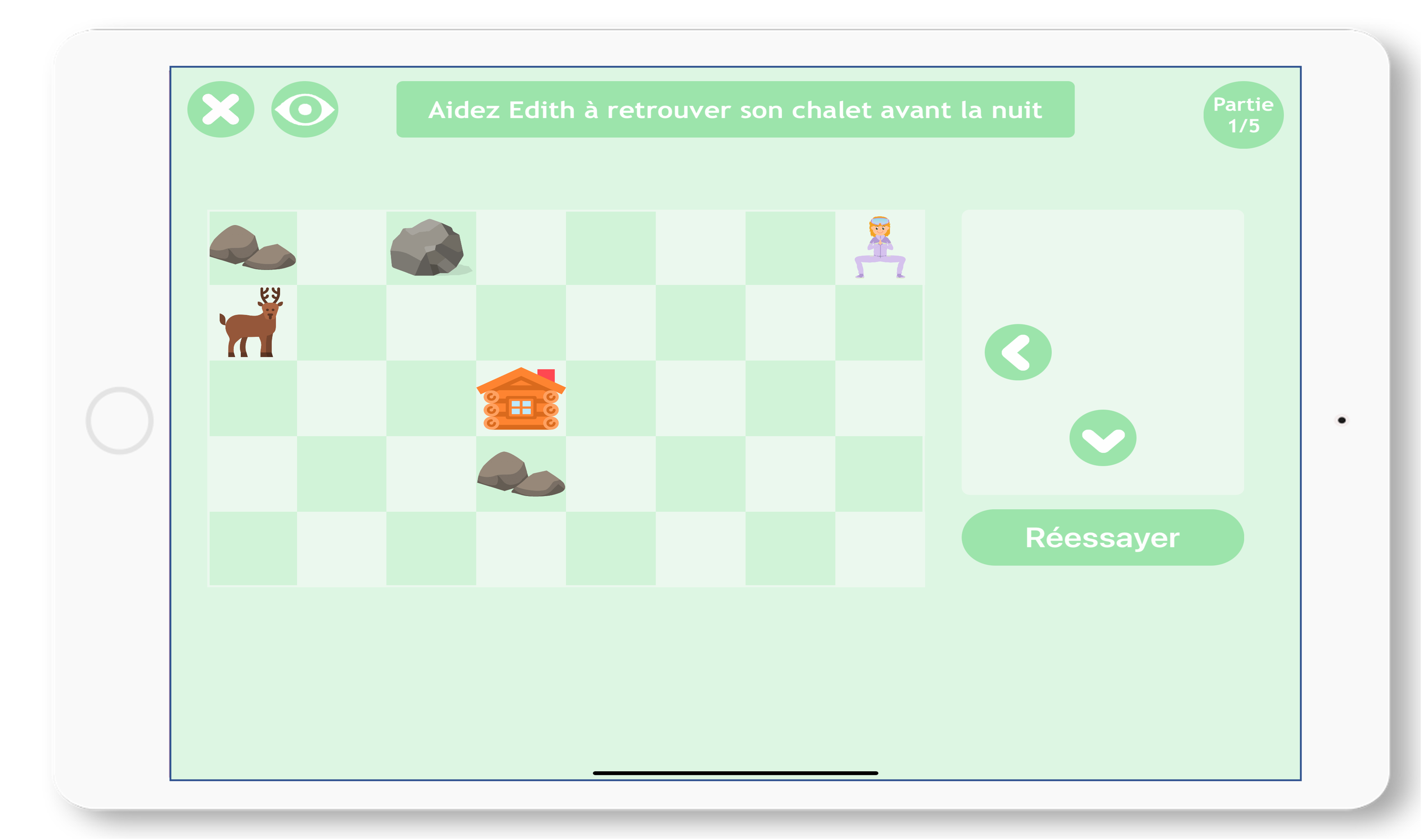
Interaction
Mood swings
Difficult social interaction
Loss of autonomy
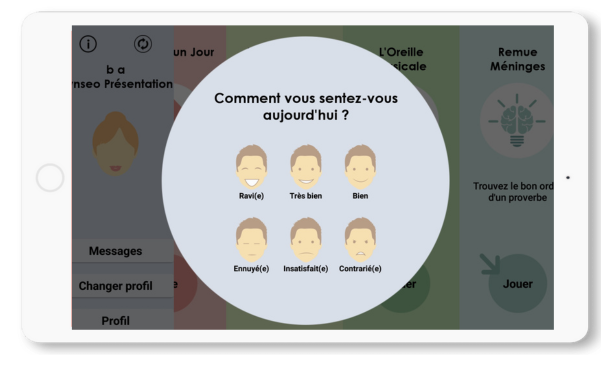
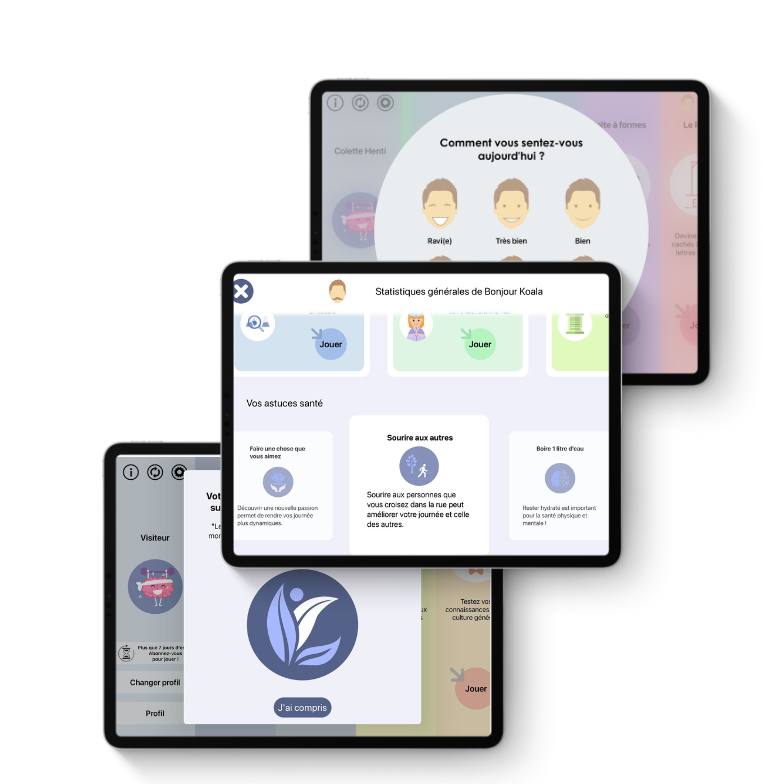
SCARLETT’S PROGRAM FOR ALZHEIMER patients
Scarlett is much more than just an app. With an extensive range of more than 30 activities designed to stimulate memory, it offers a personalized and adaptable experience that is perfectly tailored to individual needs and the specific stage of Alzheimer‘s disease. This application is not limited to brain training; It also recognizes the importance of mood in the well–being of people with the disease. By providing advice and coaching to improve mood, Edith becomes a true companion on the road, offering holistic support for those living with Alzheimer‘s, as well as their loved ones and caregivers.
Working with a person with Alzheimer‘s is possible with activities adapted to their needs.
Alzheimer’s is a degenerative pathology, so the goal of cognitive stimulation is to slow down the cognitive decline. Therefore, working with a person with Alzheimer’s is possible with adapted activities. The type of activity depends on the stage of the disease and the needs of the senior.
The Scarlett program can be used at each stage of Alzheimer’s and can be adapted to each senior.
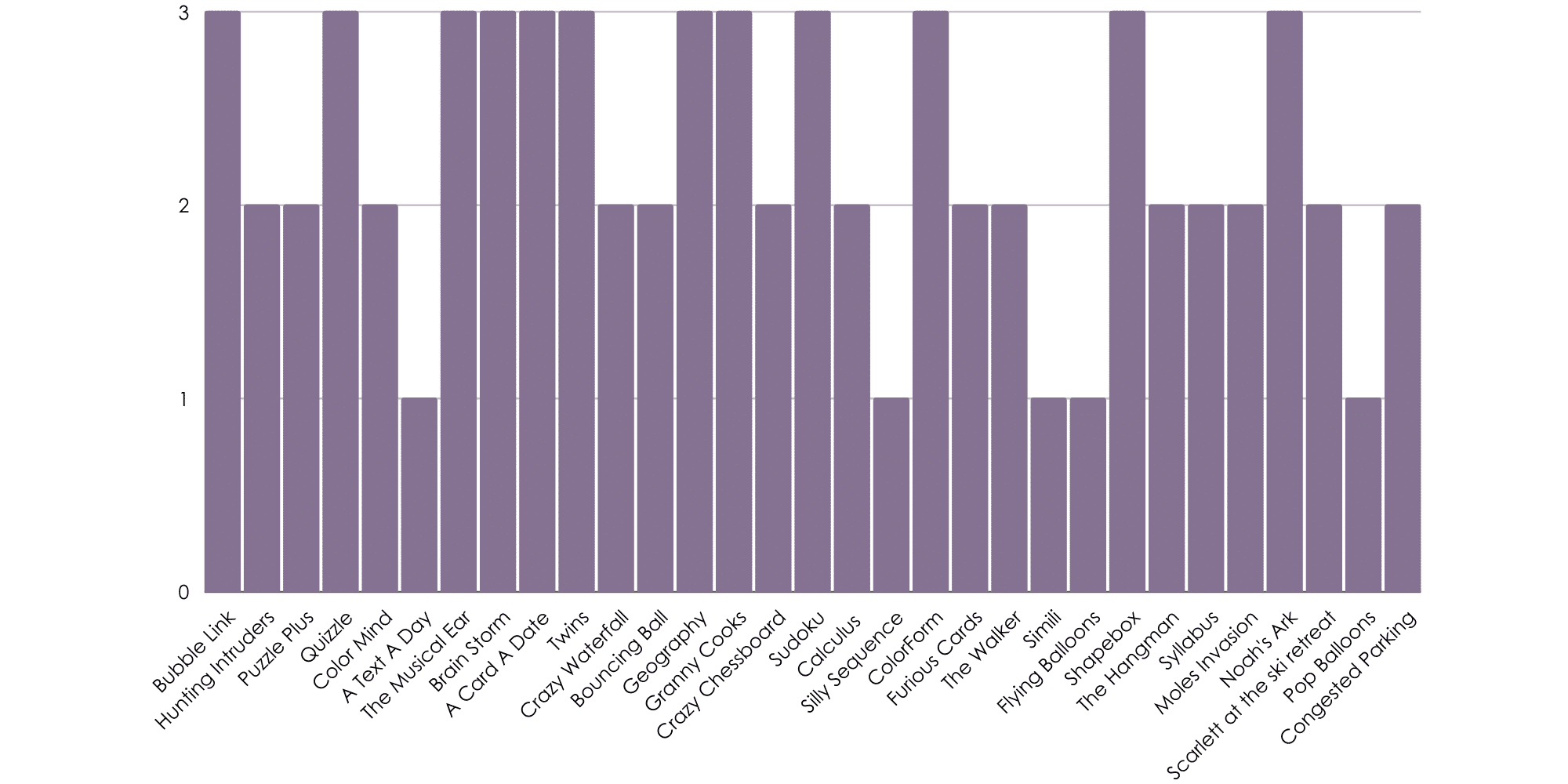
Scarlett’s games adapted to Alzheimer’s disease
IN THIS GUIDE
01.
Games adapted according to the stage of the disease
Having games adapted for Alzheimer‘s is crucial because it helps to stimulate cognitive functions while maintaining a level of comfort and enjoyment for patients. These tailor–made games offer a valuable opportunity to preserve mental and emotional capacities, while helping to improve the quality of life of those affected by the disease.
02.
Connecting with someone with Alzheimer‘s disease
Bonding with someone with Alzheimer‘s disease requires an empathetic and patient approach, focusing on non–verbal communication and sensory interactions. By sharing meaningful activities and expressing understanding and affection, it is possible to maintain a strong emotional connection despite the challenges of the disease.
03.
Practical advice
Advice and practical examples to support people with Alzheimer‘s in their daily lives. These resources provide valuable support for caregivers and families, helping them understand and cope with challenges faced in daily activities, while fostering a safe and nurturing environment.
04.
BONUS: create a Memory Workshop
Creating a memory workshop specially adapted for people with Alzheimer‘s disease offers a unique opportunity to stimulate their cognitive functions in a fun and engaging way. These workshops also promote social interactions, strengthening community bonds and providing valuable support for overall well–being.
I would like to receive the complete guide to accompanying people suffering from Alzheimer’s disease
with SCARLETT
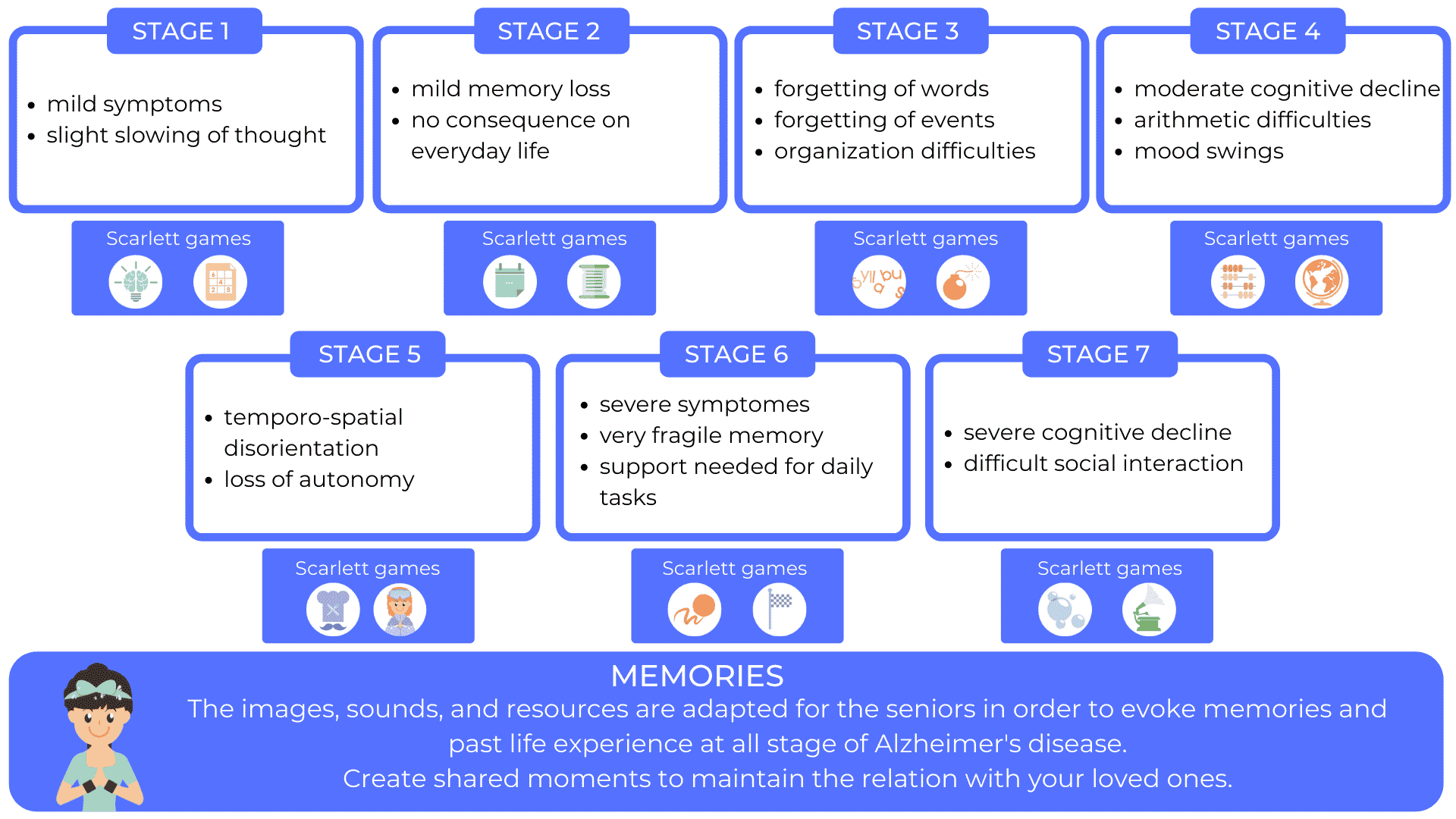
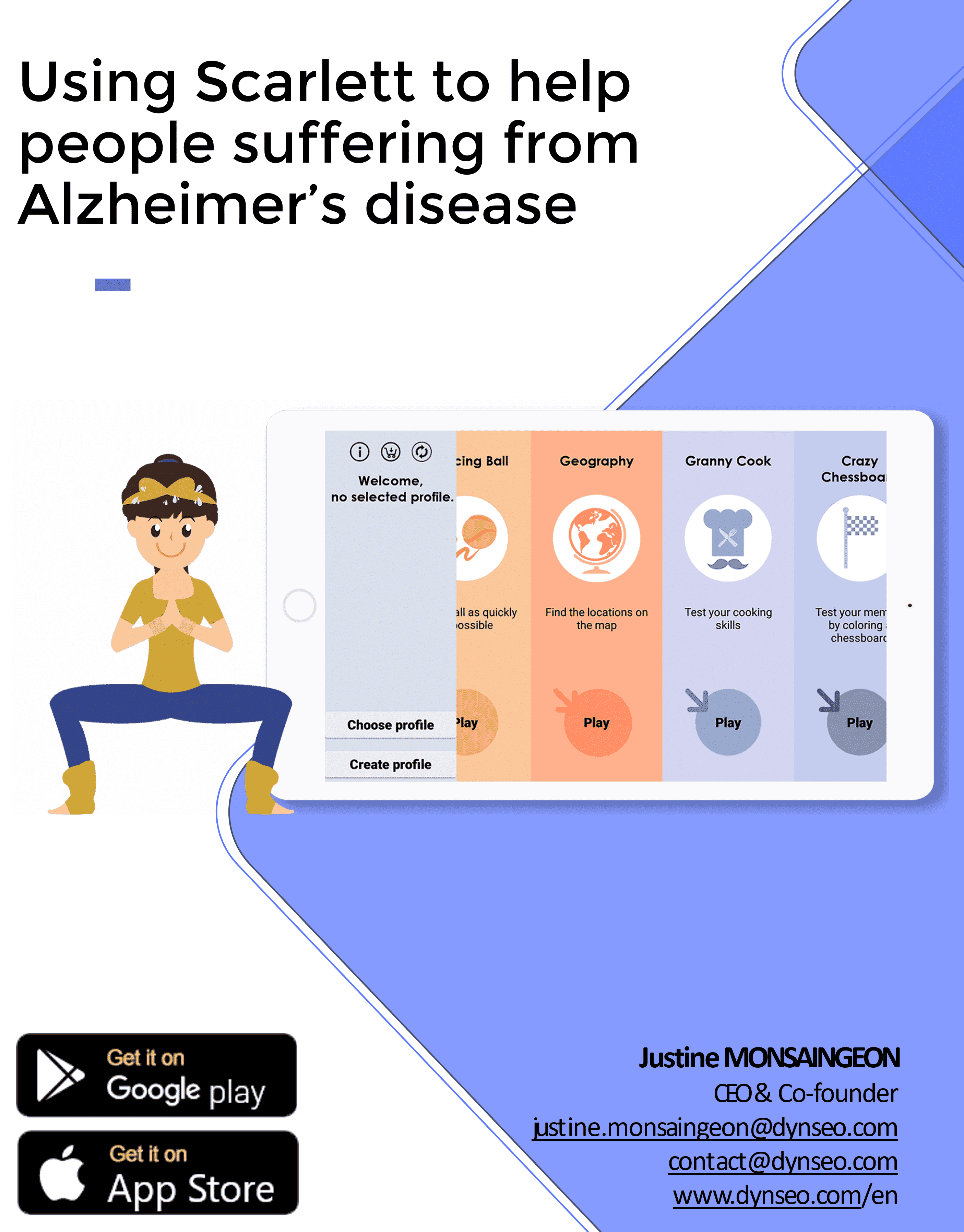
01.
GAMES ADAPTED ACCORDING TO THE STAGE OF THE DISEASE
Discover the most suitable games for people with Alzheimer’s disease within the SCARLETT programme.

Brain Storm

A card a Date

Granny Cooks
Stage 1 – Alzheimer’s
At this stage, there are no obvious symptoms yet. Cognitive stimulation can be offered to maintain cognitive functions active.
In stage 1 Alzheimer‘s disease, symptoms can be subtle and often overlooked. People may experience mild short–term memory difficulties, such as remembering familiar names or words. These occasional forgetfulness can be attributed to normal aging, but they may indicate the onset of brain changes associated with the disease. It is essential to carefully monitor these early signs and seek early diagnosis for effective management of the disease.
You can use the games at the difficult level and offer games that require good skills:
Brainstorm
Place the words in the correct order to piece the proverb together.
A word reordering game is critically important for people with Alzheimer‘s disease, as it provides cognitive stimulation while improving language skills and memory. By encouraging logical thinking and concentration, this type of play can help maintain cognitive function and slow the mental decline associated with the disease.
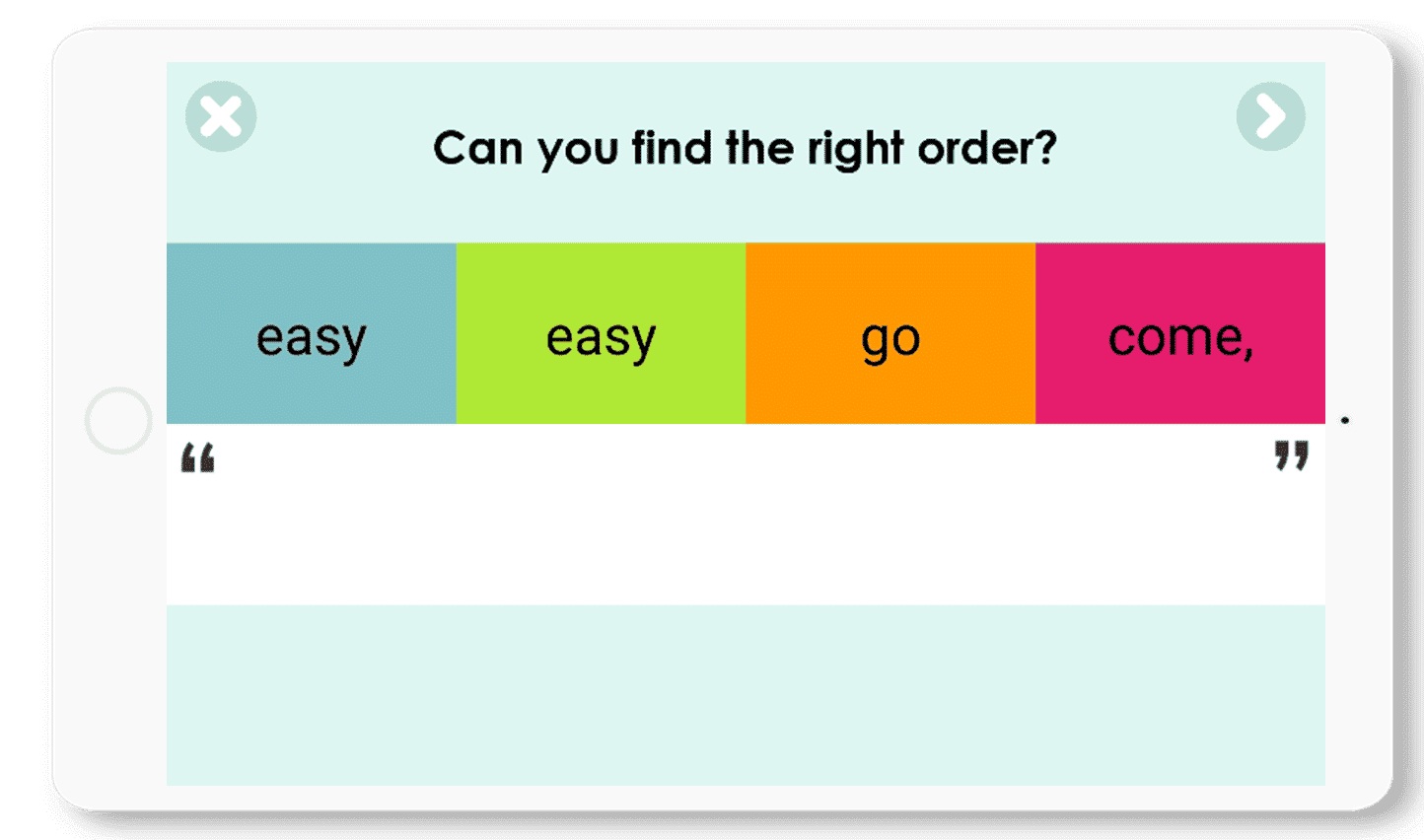
Sudoku
Fill in the grid with the numbers following the rules of classic Sudoku.
The Sudoku game stimulates memory, concentration, and problem–solving, while providing an enjoyable and engaging activity. By regularly exercising their brains with Sudoku challenges, patients can potentially slow cognitive decline and maintain their mental abilities in the long run. Additionally, this game can also foster a sense of accomplishment and self–confidence, boosting players‘ self–esteem and emotional well–being.
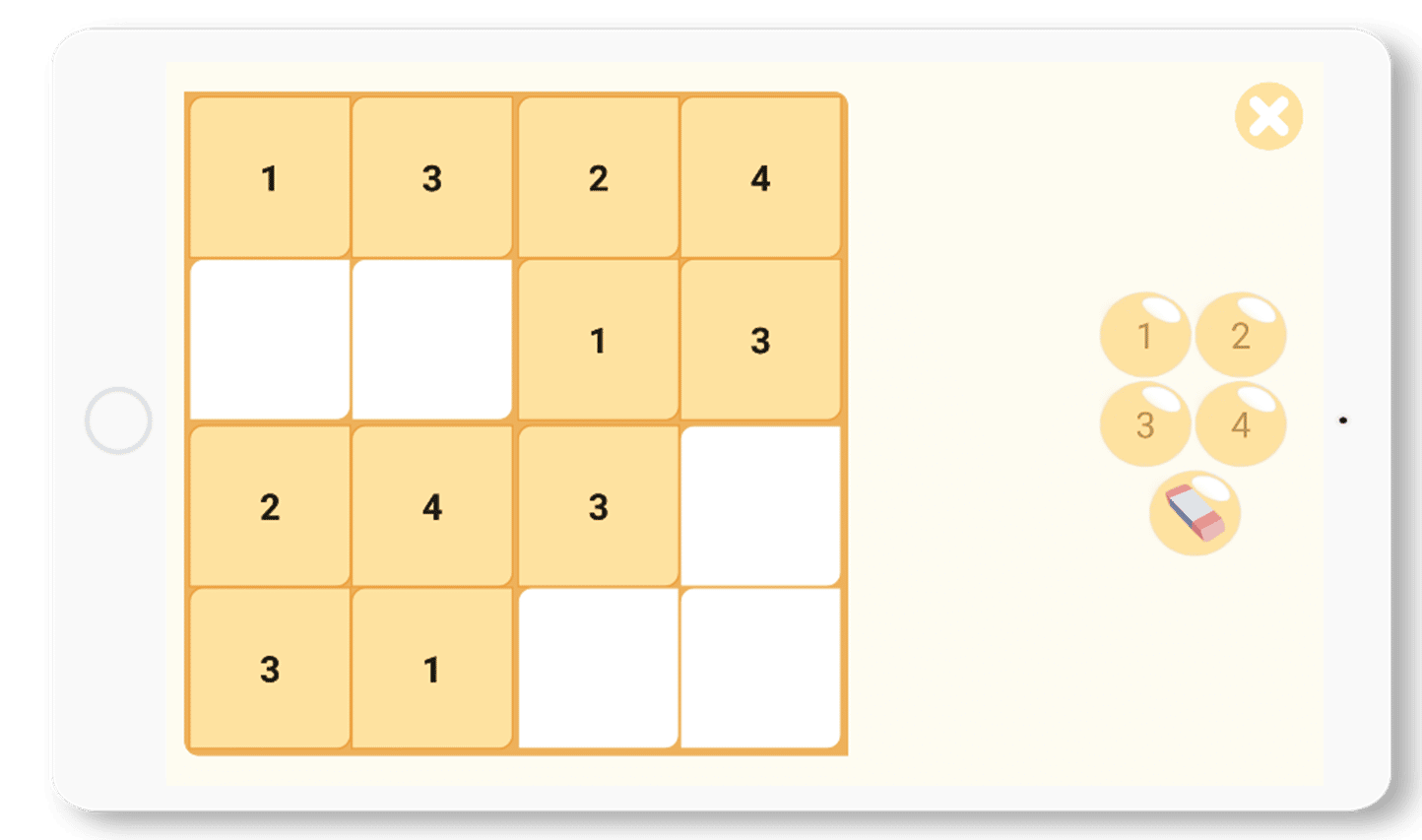
Stage 2 – Alzheimer’s
At this stage, the senior begins to have mild memory problems.
In stage 2 of Alzheimer‘s disease, symptoms begin to become more obvious and have a greater impact on daily life. People may have difficulty remembering recent events or following more complex conversations. Planning and organizational issues can also arise, affecting household and work tasks. It is crucial to provide support and understanding to those going through this stage, while considering appropriate treatment and management options.
These disorders do not yet influence the person‘s daily life, but it is important to identify these symptoms for early intervention.
A Card a Date
Put the proposed events in chronological order.
This game stimulates episodic memory and strengthens the ability to retrace temporal sequences. By working on this skill, patients can improve their ability to remember past events and maintain narrative continuity in their daily lives.
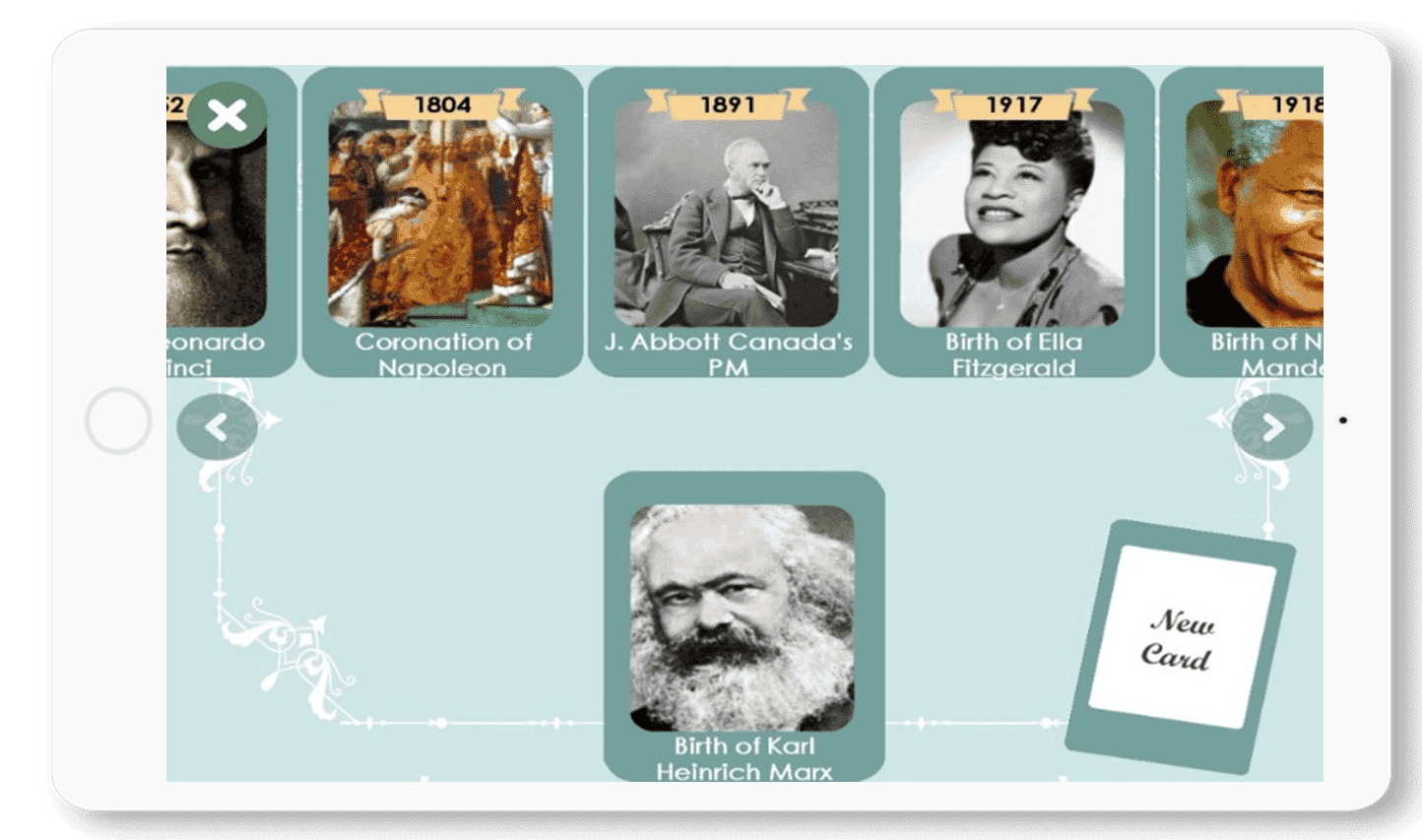
Furious Cards
Memorize the order of the cards.
With this game you can improve the short-term memory and language.
For example, ask the person to memorize the name of the objects.
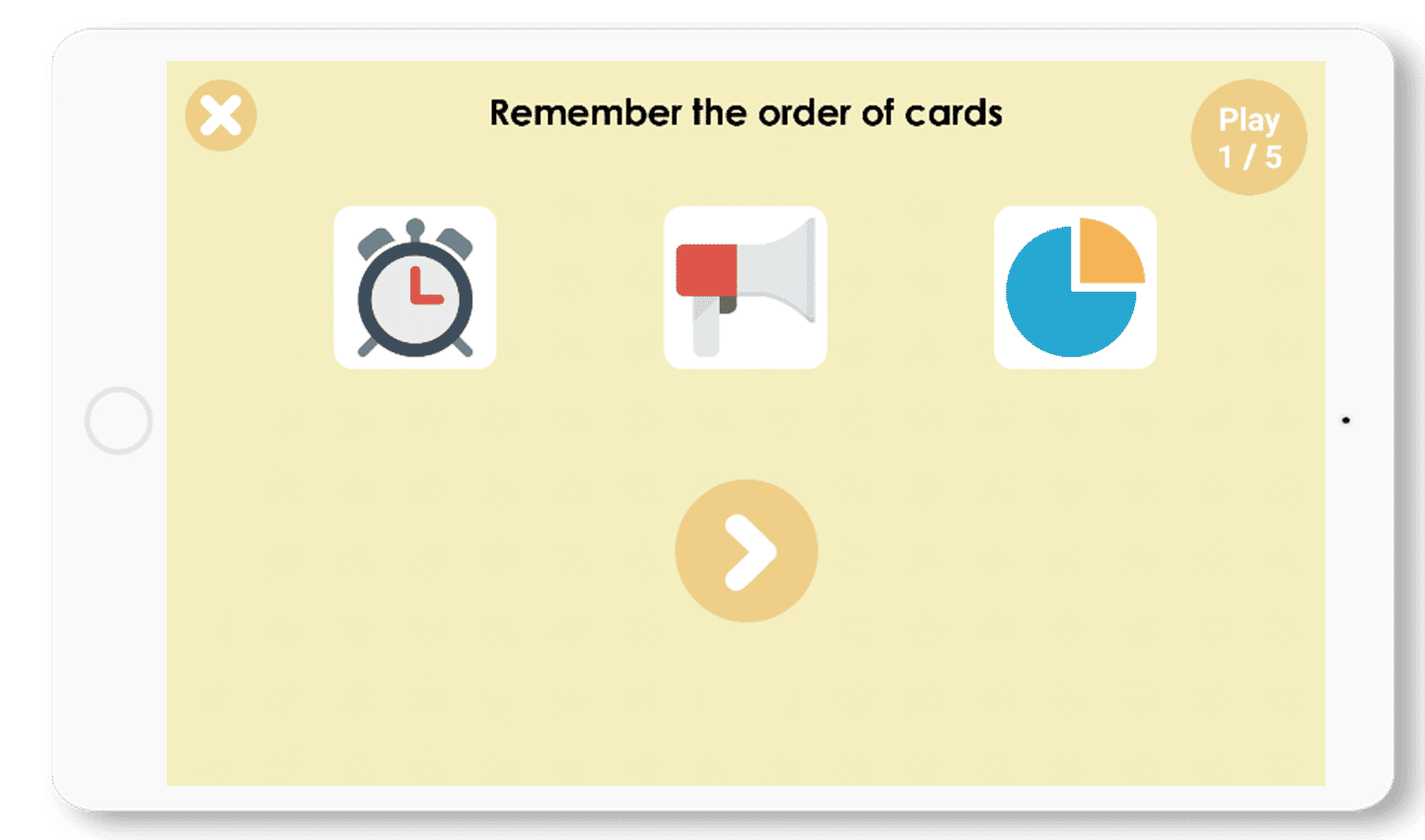
Stage 3 – Alzheimer’s
At this point, the symptoms start to become more obvious, and it is possible to diagnose Alzheimer’s disease.
In stage 3 of Alzheimer‘s disease, symptoms worsen, further affecting daily life. People may find it difficult to complete simple tasks such as getting dressed or preparing meals. Memory impairment becomes more evident, with frequent forgetfulness of recent events and familiar names. It is crucial to provide appropriate support and care as the disease progresses.
You can start using the games at the middle level.
In addition to games, this can be the time to accompany the person suffering from Alzheimer‘s to a specialist. For example, a speech therapist!
Syllabus
Find the words from the syllables.
With this game you stimulate language cognition while offering a pleasant and accessible mental exercise. By segmenting words into syllables, this game can help improve language processing ability and maintain communication skills.
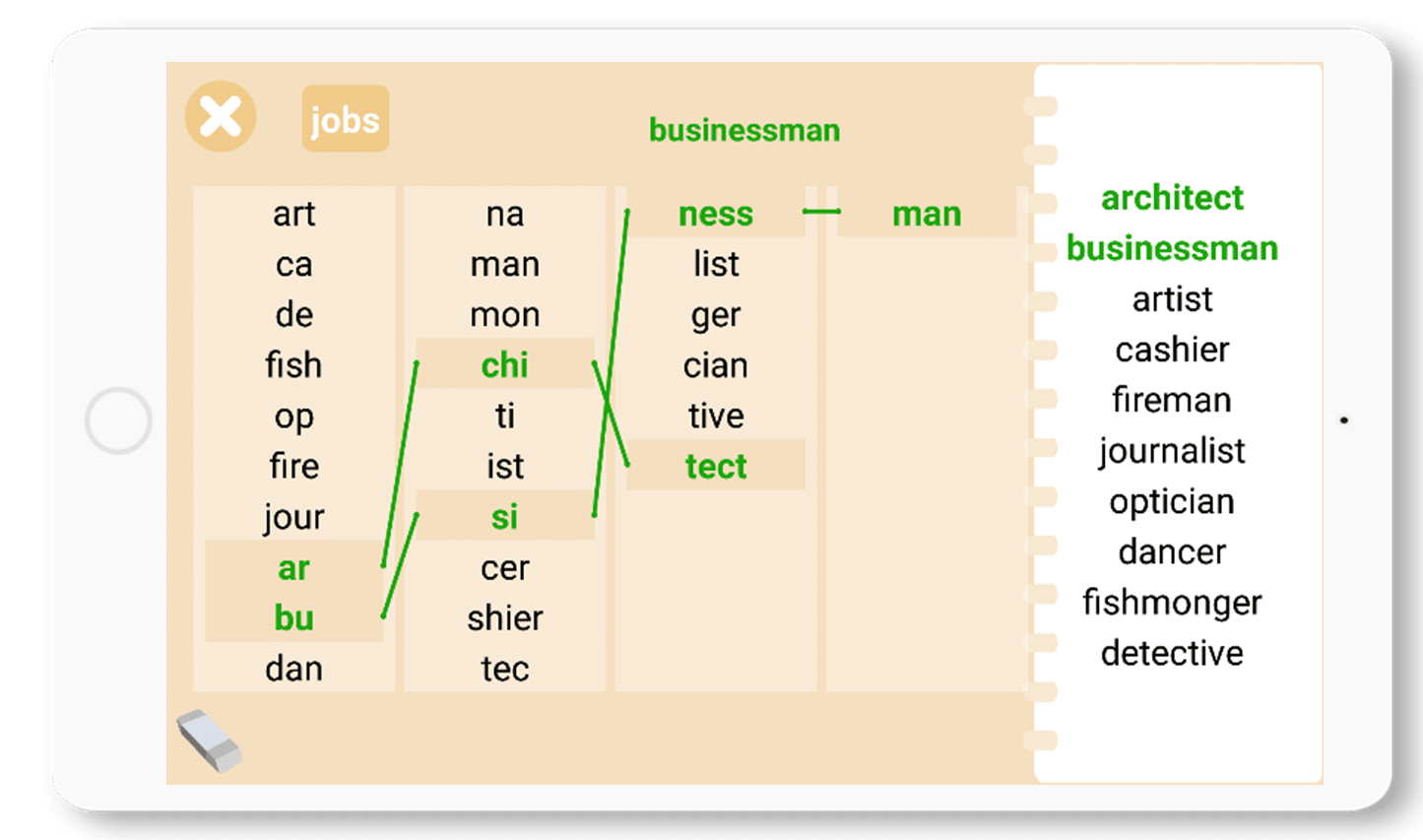
Crazy Waterfall
Find the differences between the symbols between the template on the left and the proposals on the right.
A difference game is particularly important for people with Alzheimer‘s disease, as it involves concentration, visual perception and memory. By identifying disparities between two models, this game can help maintain cognitive function and stimulate the brain in an entertaining way.
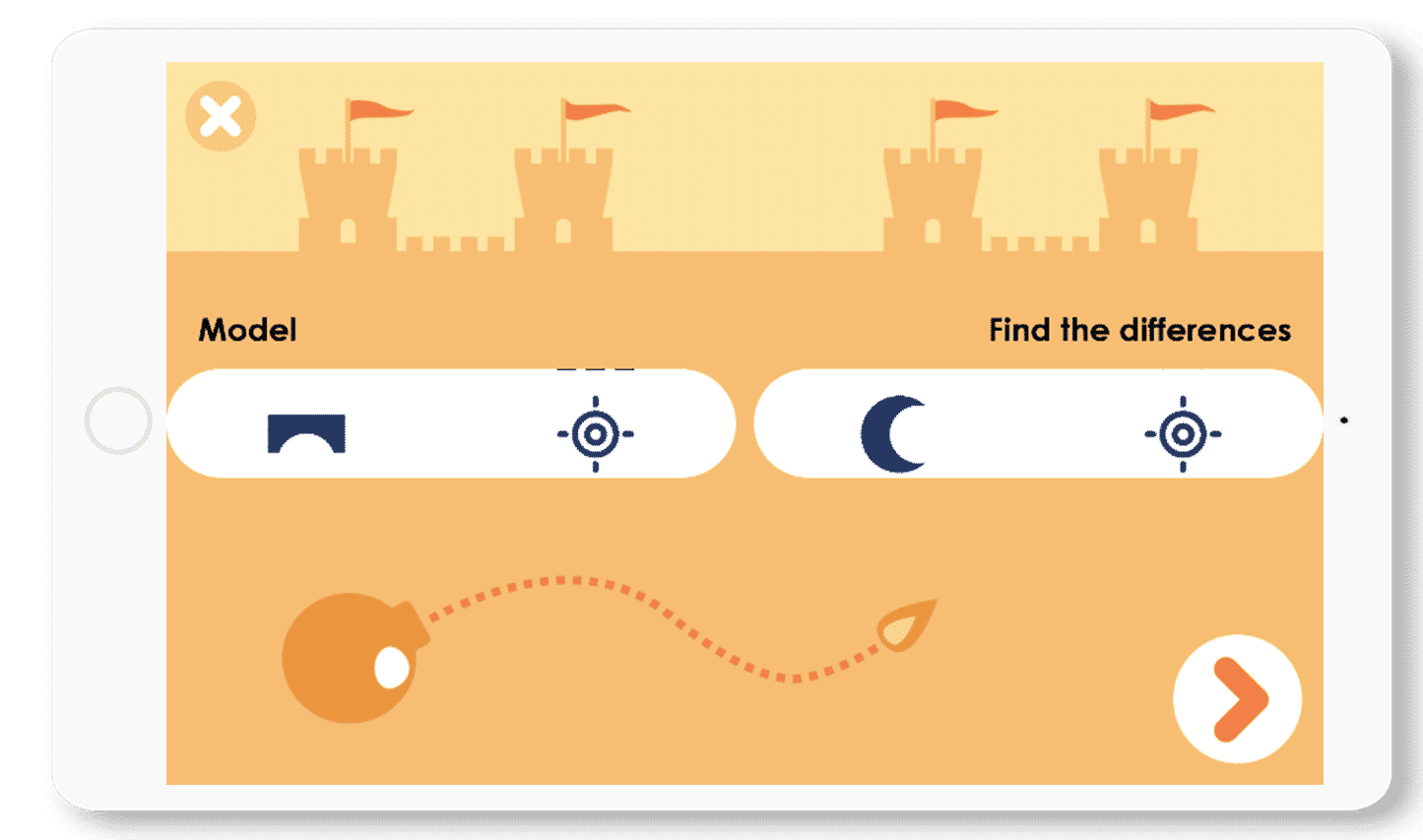
Stage 4 – Alzheimer’s
Calculus
Solve the math problems.
This game stimulates cognitive functions such as concentration, working memory, and problem–solving. By practicing simple mathematical operations, this game can help maintain numerical skills and slow the cognitive decline associated with the disease.
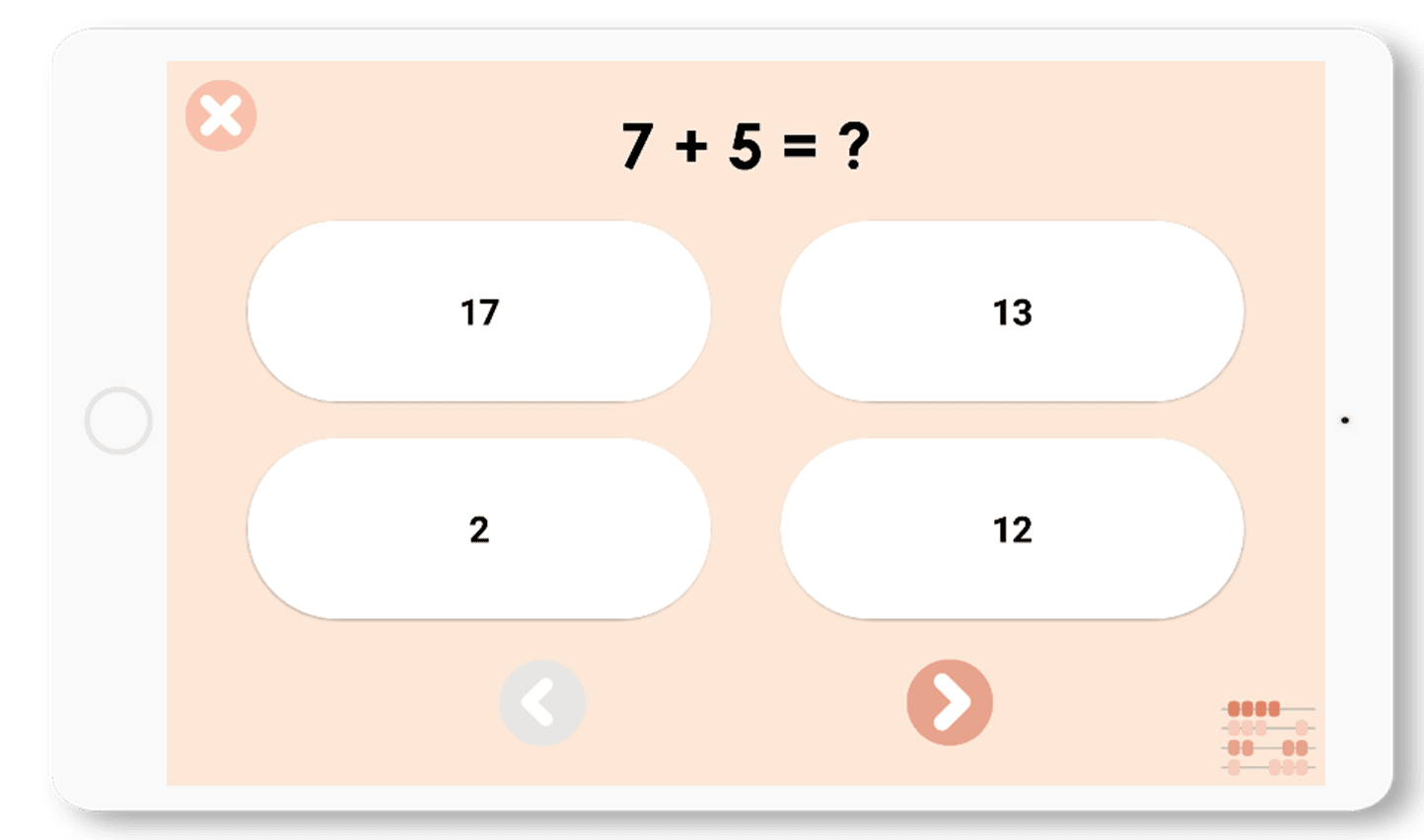
Geography
Find the locations of the European countries or US States on the map.
A geography game is of particular importance for people with Alzheimer‘s disease because it engages spatial memory and geographic reasoning, thus preserving cognitive functions related to spatial orientation. By identifying places and recognizing maps, this game can help maintain geographic knowledge and stimulate interest in the world around us.
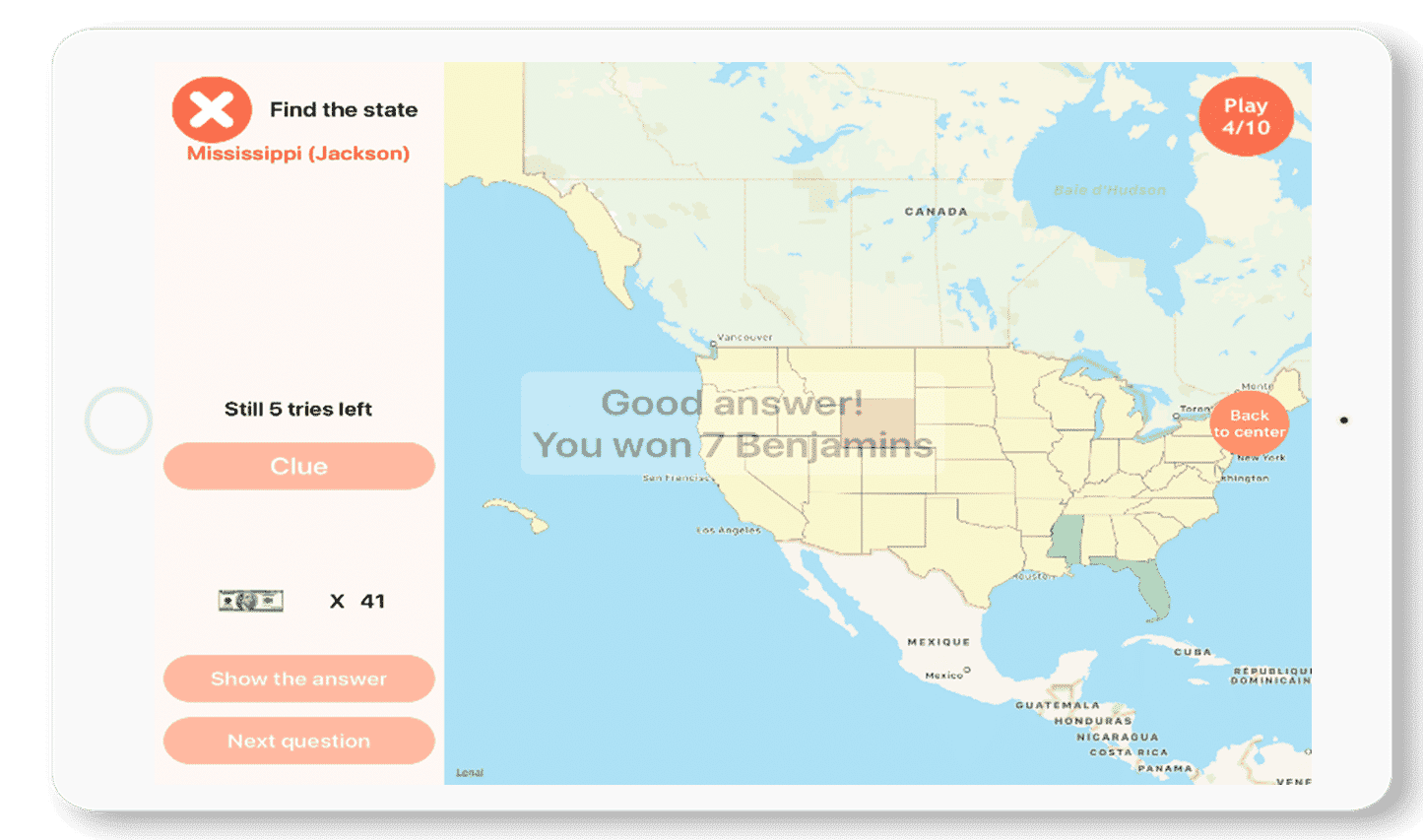
Stage 5 – Alzheimer’s
At this stage, symptoms become more severe and include temporal-spatial difficulties and loss of independence.
In stage 5 of Alzheimer‘s disease, Asymptoms become even more debilitating, profoundly affecting individuals‘ ability to function independently. People may find it difficult to remember personal details such as their address or phone number, as well as perform simple daily tasks such as dressing or feeding themselves. Communication becomes increasingly difficult, with a significant decrease in the ability to follow a conversation or express thoughts coherently. At this stage, intensive support and specialized care are often required to ensure the safety and well–being of those affected.
You can start using Scarlett‘s games at the easy level.
Granny Cooks
Remember the ingredients and the recipe.
A cooking tablet game is especially important for people with Alzheimer‘s disease because it allows them to practice practical skills while stimulating memory and cognition. By following virtual recipes and completing simple cooking activities, this game offers an immersive and safe experience in a familiar environment.
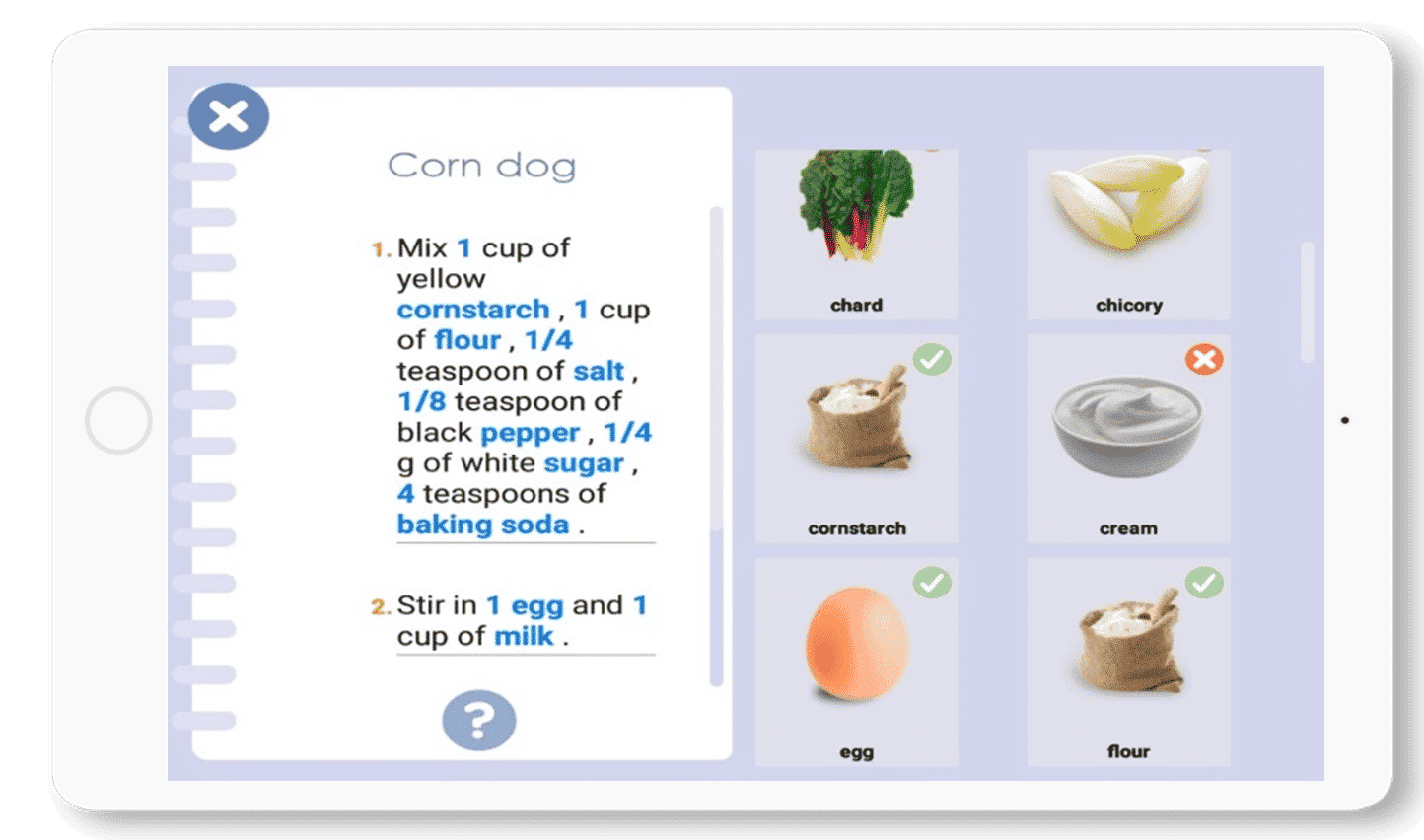
Scarlett at the ski retreat
Help Scarlett get back to her cottage.
This game stimulates problem–solving and spatial planning. By offering playful challenges related to navigation and decision–making, this game can help maintain cognitive function and strengthen working memory.
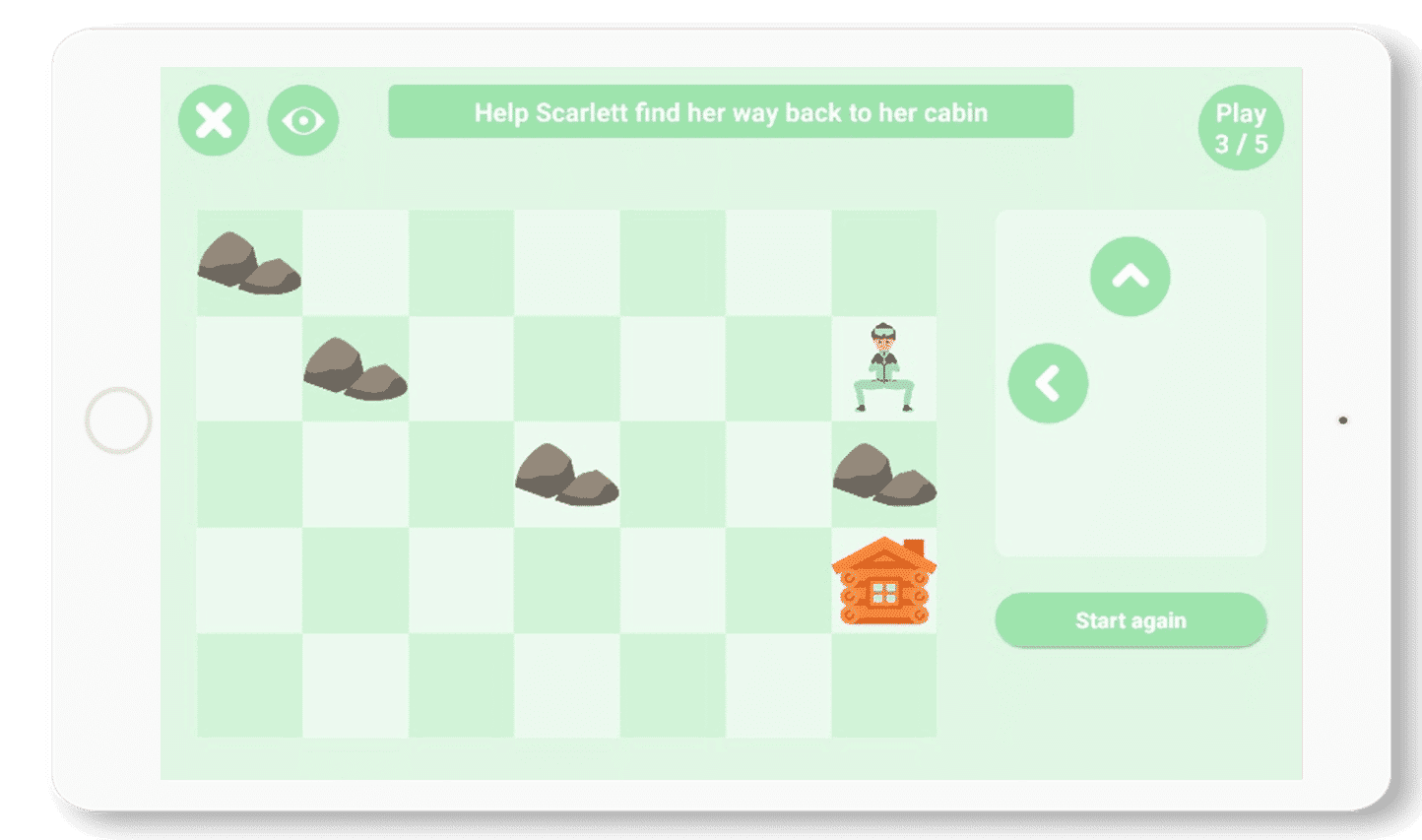
Stage 6 – Alzheimer’s
At this stage, the symptoms are severe, mnemonic skills are weaker, and the person needs support for daily activities.
In stage 6 Alzheimer‘s disease, symptoms reach an advanced level, resulting in almost total dependence on daily care. People may have difficulty recognizing family members and remembering their own personal history. Cognitive functions are severely impaired, with a limited ability to communicate verbally and perform simple tasks. At this stage, intensive assistance and constant supervision are often required to ensure patient comfort and safety.
Bouncing Ball
Hit the ball as quickly as possible.
This game provides visual and motor stimulation while promoting hand–eye coordination. By tracking the movement of the ball and clicking on it, this game encourages attention and concentration, helping to maintain cognitive functions. In addition, it can provide relaxing and rewarding entertainment, contributing to the emotional well–being of players while providing a fun and accessible activity.
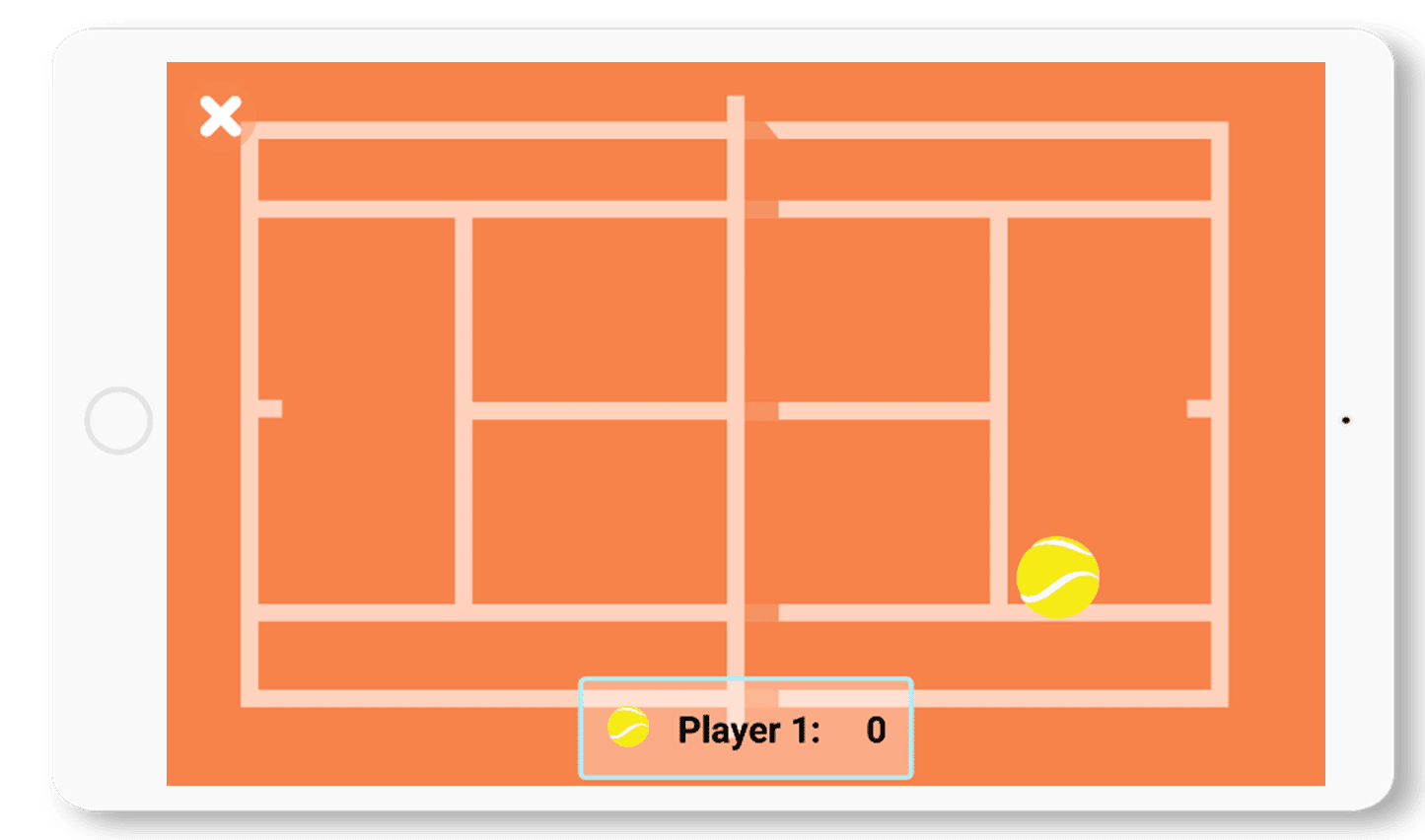
Crazy Chessboard
Remember the position of the squares on the chessboard.
This game stimulates visual and spatial memory. By focusing on the positions of the squares and memorizing them, this game trains working memory, helping to maintain cognitive abilities.
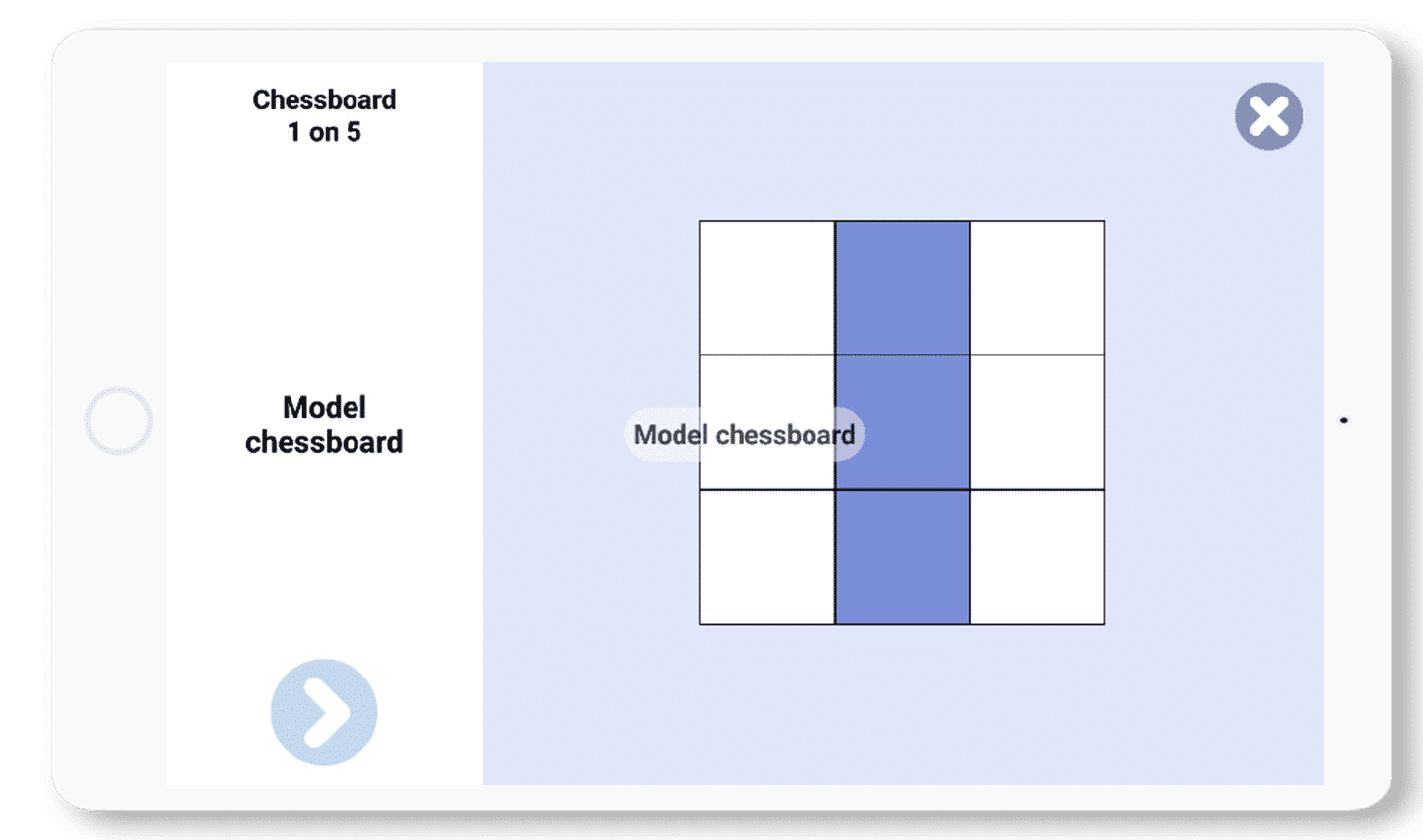
Stage 7 – Alzheimer’s
At this stage, the cognitive deterioration is severe, and the senior can have difficulties interacting with those around him.
In stage 7 Alzheimer‘s disease, symptoms are extremely debilitating, resulting in an almost total loss of autonomy and communication. Sufferers may be unable to recognize loved ones, speak, or respond to their surroundings. They often require full assistance with basic care, and the progression of the disease can lead to serious medical complications.
Bubble Link
Connect the bubbles in ascending order.
Even in the advanced stage of Alzheimer‘s disease, a game involving putting numbers in order is still important because it can maintain basic cognitive skills and offer mental stimulation. Although cognitive abilities are severely impaired, a simple activity like this can help maintain some form of connection with the outside world.
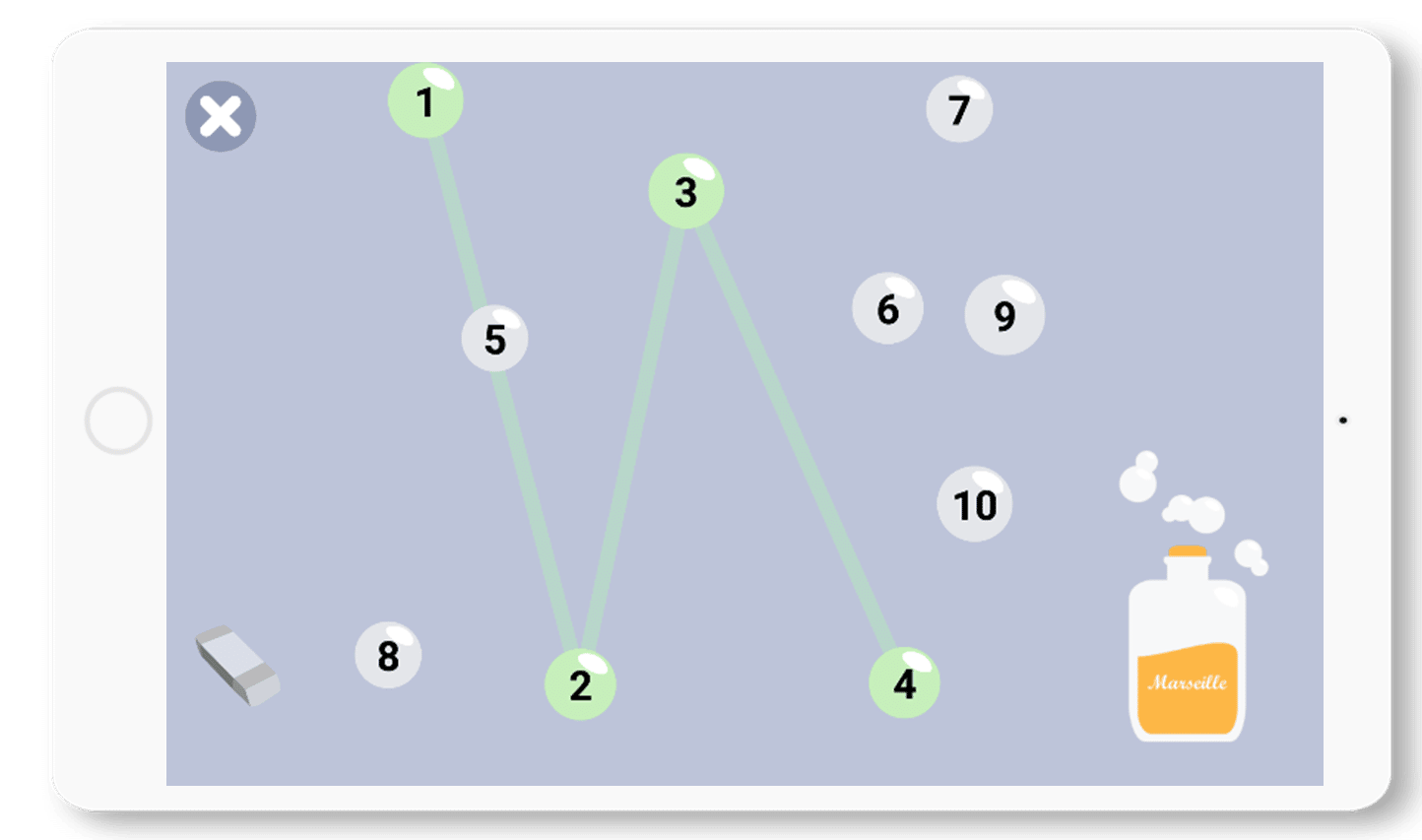
The Musical Ear
Recognize the proposed sounds.
This game offers sensory and cognitive stimulation. Even though the ability to communicate and understand is severely impaired, the recognition of familiar sounds can evoke pleasant memories and maintain a connection with the surrounding world. In addition, this activity can bring a sense of comfort and familiarity, providing a moment of respite and pleasure from the often difficult daily lives of sufferers and their caregivers.
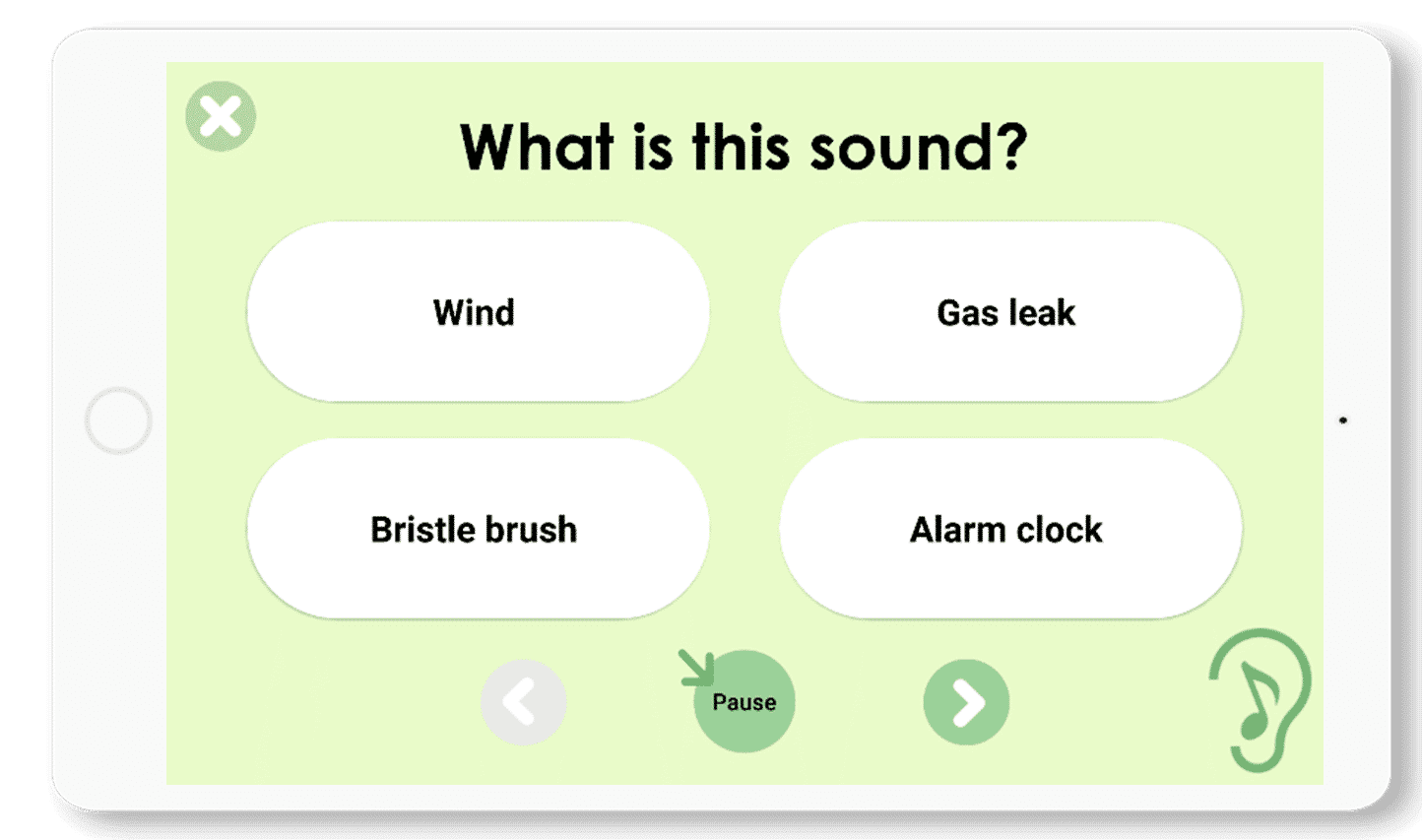
02.
CONNECTING WITH SOMEONE WITH ALZHEIMER’S DISEASE
The relationship between patients and their loved ones takes on a particularly important dimension, as it evolves as the disease progresses. This relationship becomes an essential pillar in ensuring patients‘ emotional and physical well–being throughout their journey with the disease.

Quizzle

ColorForm

A text a Day
Scarlett can be used for home help or in nursing homes. The simple and intuitive interface allows seniors to use it independently.
In the early stages of Alzheimer’s, it will be possible to ask the senior to play independently in between sessions to maintain cognitive stimulation.
In Alzheimer’s disease, the connection with caregivers or family becomes ever weaker. Especially for the family, it is difficult to see their loved one without being able to interact with them as before.
Playing is a soothing and fun activity that makes shared moments enjoyable. To that end, Scarlett allows you to create and maintain a bond with the senior. Games are culturally adapted and can evoke memories to be shared and create conversation with the help of images and key words.
The most common games used for bonding are:
Quizzle
Answer general knowledge questions.
A general knowledge quiz game is of great importance in the relationship with a person with Alzheimer‘s disease, as it provides an opportunity to share moments of connection and intellectual stimulation. By asking questions and discussing the answers, this game can strengthen family and friendship bonds while encouraging social interaction.
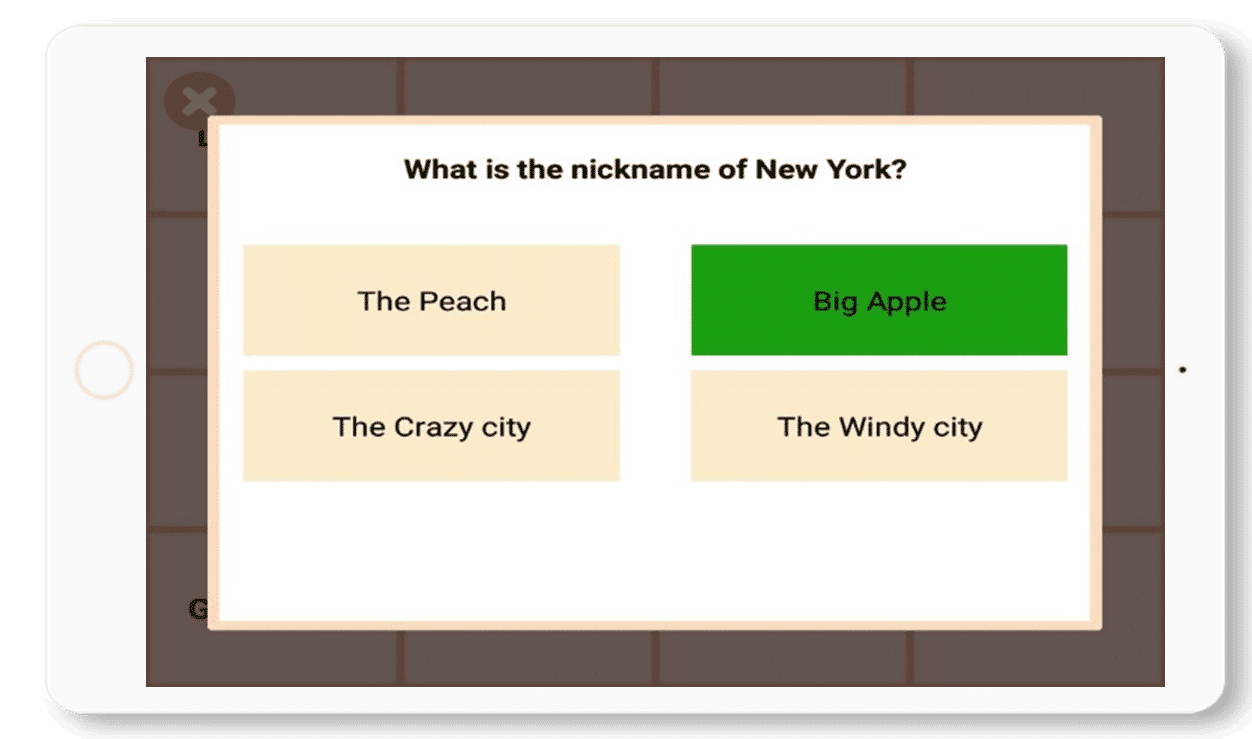
A Text a Day
Read excerpts of texts from famous writers.
A game involving the reading of a text is of particular importance in the relationship with a person with Alzheimer‘s disease, as it provides an opportunity for sharing and enriching communication. By reading a text together, loved ones can stimulate the patient‘s cognitive and linguistic abilities, while creating moments of complicity and emotional connection.
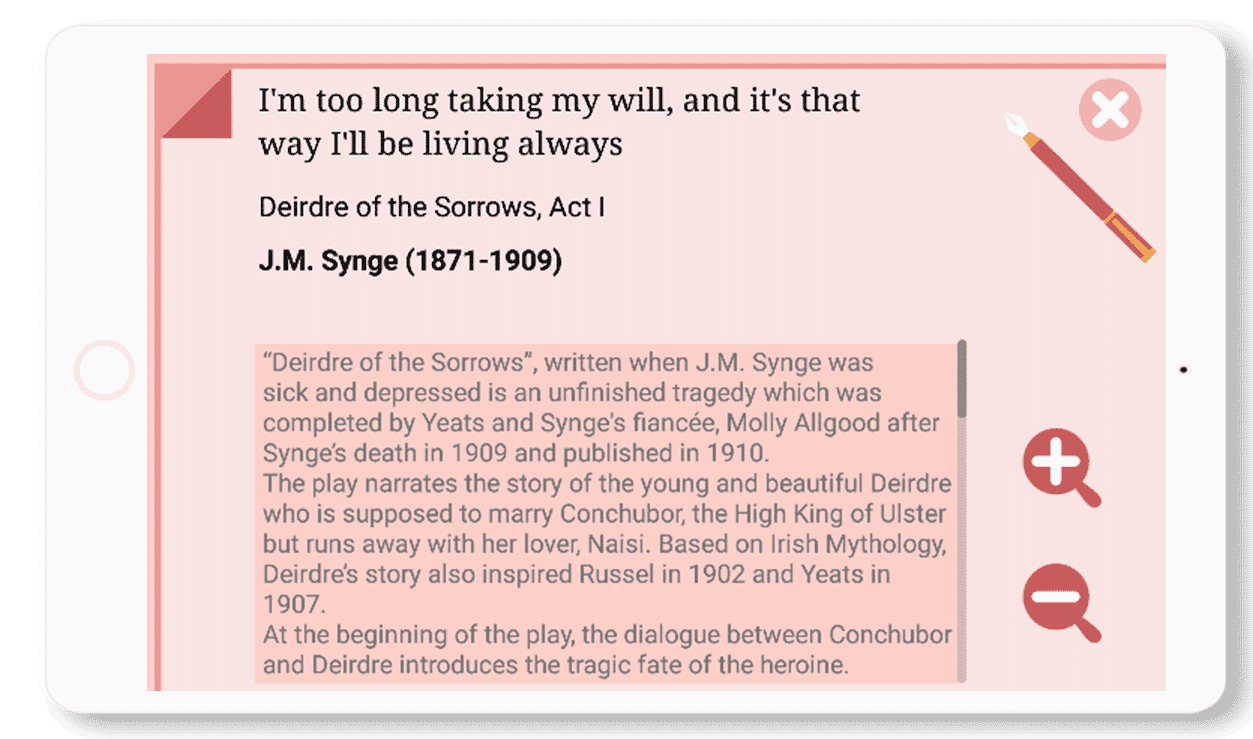
TWO-PLAYER GAMES
Playing games in pairs with people with Alzheimer‘s disease is of paramount importance to their well–being and quality of life. These moments of sharing offer a valuable opportunity to create emotional bonds and strengthen interpersonal relationships. By actively participating in games, patients not only benefit from cognitive and sensory stimulation, but they also feel a sense of connection and belonging. These playful interactions help maintain self–esteem and can elicit pleasant memories, contributing to their emotional well–being. By sharing these moments of joy and interaction, loved ones and caregivers can also feel a deeper connection with the people they are accompanying in their fight against the disease.
Scarlett also offers games for two to maintain the social link, in these games the screen is divided in two and each player plays on his side.
The games that have the 2-player mode are:
ColorForm
Find the right shape or color depending on the model.
This promotes social interaction and non–verbal communication. By sharing this activity, loved ones can create moments of complicity and pleasure, thus strengthening emotional bonds.

Moles Invasion
Tap the moles as soon as they appear.

Now that you know everything about the Scarlett app, you can try it for free for 7 days.
Then, you can subscribe with the different plans we propose: either our offer for individuals or our offer for professionals.
It is very difficult to accompany an Alzheimer’s patient both emotionally and physically. With Scarlett, we hope to facilitate the care of people suffering from this disease.
In addition, after 20 minutes of play, the SCARLETT app stops to ask your residents how they are feeling. They can choose between 6 moods, positive or negative. This allows seniors to express themselves, to share their mood in a safe context.
Discovering the mood of your residents helps you adapt to their needs. You can find out what they like or don‘t like. In addition, thanks to EDITH, you can quickly find out if a senior is sad or angry and therefore be able to accompany him quickly to improve his mood.
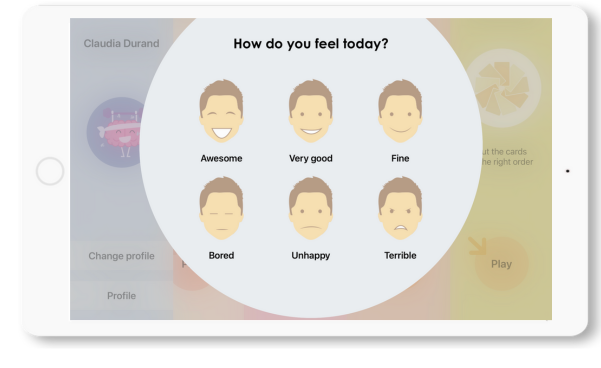
03.
PRACTICAL ADVICE
Scenarios and practical examples to accompany you in everyday life.

Tangram

Scarlett at the ski retreat

Sudoku
How can we support the person in everyday life?
Accompanying a person with Alzheimer‘s disease in their daily life requires a patient, loving and adaptive approach. It is essential to create a safe and familiar environment, minimizing distractions and maintaining a stable routine. Encouraging autonomy as much as possible while offering constant support is crucial. Simplifying tasks and instructions, using visual and verbal reminders, and giving limited choices can help reduce confusion and promote a sense of control. It is also important to stay in tune with the person‘s emotional needs, offering support and maintaining caring and respectful communication. By adopting an empathetic approach and adapting to the person‘s cognitive changes, it is possible to facilitate their well–being and quality of life on a daily basis.
- Create a safe environment by removing obstacles and reducing the risk of falling.
- Maintain a stable daily routine to help minimize confusion and anxiety.
- Simplify tasks by breaking them down into simple steps and providing clear, concise instructions.
- Use visual reminders, such as to–do lists or notes, to help strengthen memory.
- Offer limited choices to allow the person to maintain a sense of control and autonomy.
- Be patient and encouraging, offering help when needed without making the person feel incapable.
- Pay attention to emotional cues and empathize with frustrations or confusion.
- Keep communication clear and simple, using positive language and avoiding overly complex questions.
- Promote social engagement by encouraging participation in activities and facilitating interactions with others.
- Take care of yourself as a caregiver, seeking support from friends, family, or support groups, and taking breaks to recharge your batteries.

How to behave if a senior always has a negative mood?
If a person is often in a negative mood, it means that one or more elements of their life are preventing them from living in harmony. For this reason, DYNSEO sends an alert when the app records 3 consecutive negative moods.
The first thing you need to do is find a time to talk with the senior. This time should be quiet and private, to allow the senior to feel comfortable.
Once alone with the senior, you should not broach the subject directly. You can start by noticing that you‘ve noticed a change in their behavior (e.g., they‘re less active in games, or they‘re quieter). In this way, you show that you care about the senior on practical and objective aspects.
The senior will then be able to become aware of his change and look for an explanation. You can start a discussion and look for the cause of their discomfort together. It is important to respect the senior‘s time, without imposing ideas or solutions.
The purpose of the discussion with the senior is to make him aware of his change in mood and to find the cause to find a solution together.
DYNSEO games can be a good solution to alleviate the discomfort of the senior. Games, by definition, are fun and put a smile on your face. With more than 30 games, you can find the best game to make the senior happy.
If the senior is sad, use the games at an easy level, it will give him confidence as he will manage to finish the game, which leads to positive feedback and a good self–image.
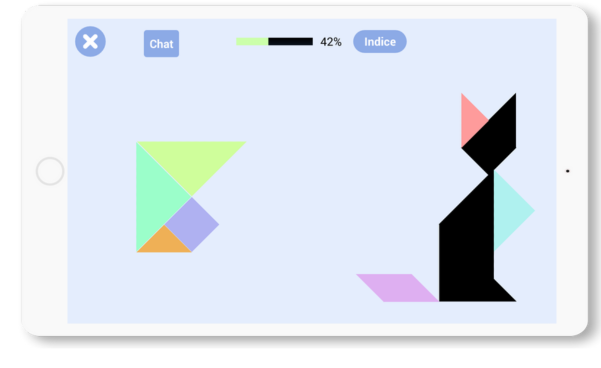
What if the senior wants to stop playing ?
As a general rule, when organizing activities it is important to first define the activities you want to do, the number of games to be done and the time you have available for the activity. You then need to share all this information with the senior.
If you have prepared a list of games to do and the senior wants to stop playing, you can remind him of the list, say the games you have already made and the ones that still need to be made. In this way, the senior can have a goal and can estimate how much time they have left and motivate themselves to continue.
You can print game logos or images and create a visual list. At the end of each game, you can rotate or cover the image or make a sign next to the image. In this way, the senior can have a vision of what he has already done and what he still has to do.
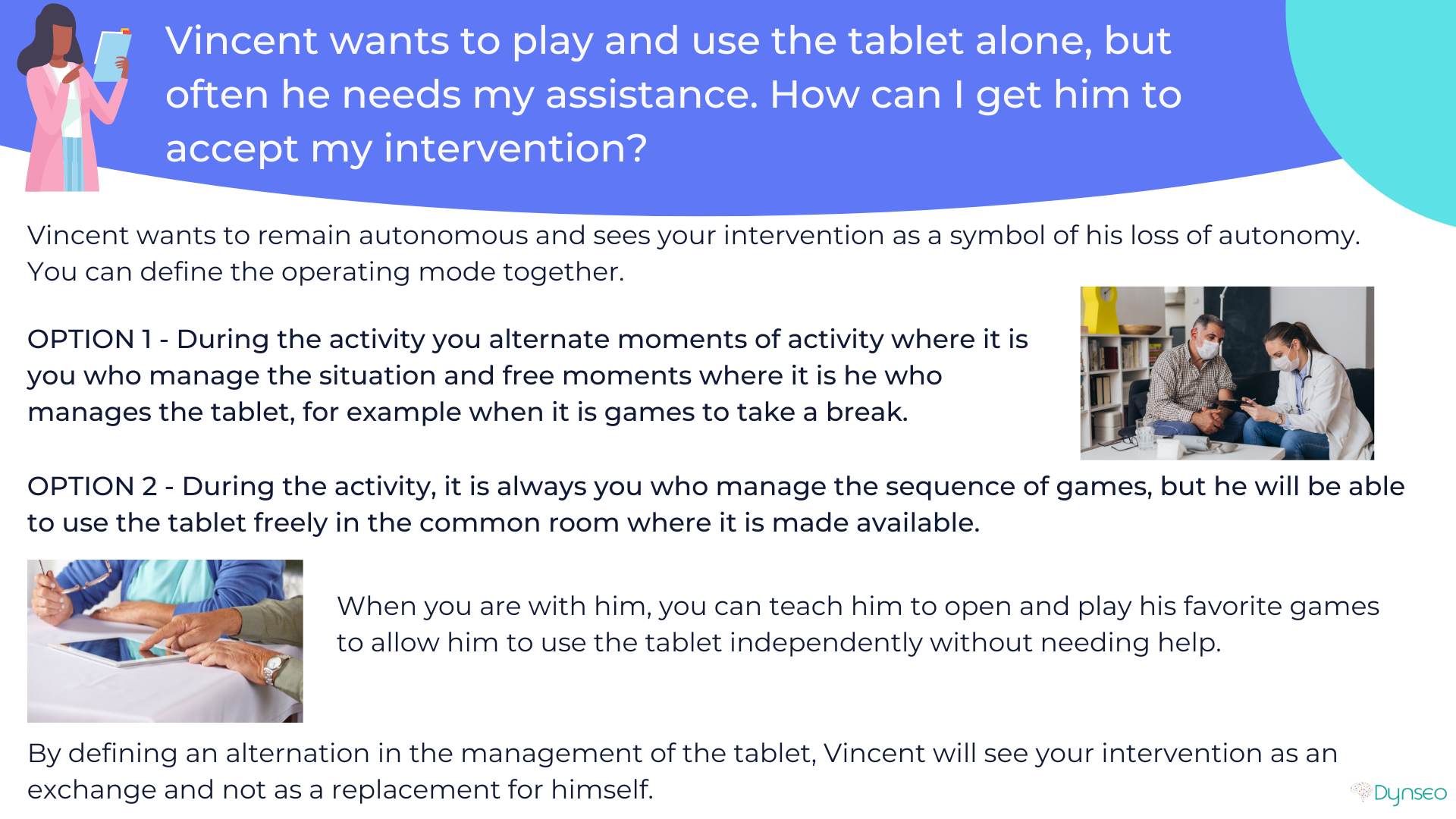
04.
CREATE A MEMORY WORKSHOP
A memory workshop is a session organized to stimulate the cognitive abilities and memory of participants, usually elderly people or people with cognitive disorders such as Alzheimer‘s disease. These workshops can include a variety of activities, such as games, thinking exercises, and cognitive stimulation techniques, designed to maintain and improve mental function.

The Hangman

Twins
ColorMind
Organizing memory workshops for people with Alzheimer‘s disease, whether at home or in a specialized institution such as a nursing home, is of crucial importance in the management of the disease. These workshops provide a valuable opportunity to stimulate participants‘ cognitive functions through a variety of activities tailored to their needs. By working on memory, concentration, and problem–solving, these sessions aim to slow cognitive decline and improve the quality of life of sufferers. Additionally, these workshops promote social interactions, providing a safe space where participants can feel supported and engaged in an encouraging environment.
An example of a memory workshop for people with Alzheimer‘s disease could be a memory recall activity. Participants may be asked to bring family photos or significant items from their past. In turn, they could share memories associated with these elements, encouraging discussion and reminiscence. This activity would stimulate autobiographical memory and strengthen social bonds between participants, while providing a sense of comfort and well–being in a familiar environment.

The Hangman
The hangman‘s game is of significant importance in a memory workshop for people with Alzheimer‘s disease. By encouraging word search and retrieval, it stimulates lexical memory and verbal cognition. In addition, participating in this game promotes social interaction and fun, strengthening social connections and emotional well–being for participants. Finally, it offers a fun and engaging activity that can be adapted to different levels of ability, providing an enriching experience for all.
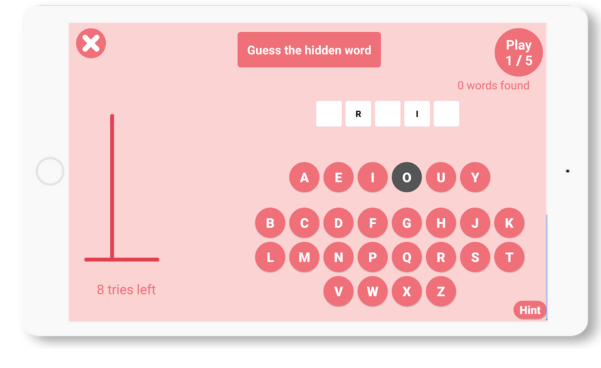
Twins
In this game, the person has to find the pairs.
This game is of considerable importance in a memory workshop for people with Alzheimer‘s disease. By engaging visual memory and concentration, it helps maintain and stimulate participants‘ cognitive abilities.
You can also play with two people!
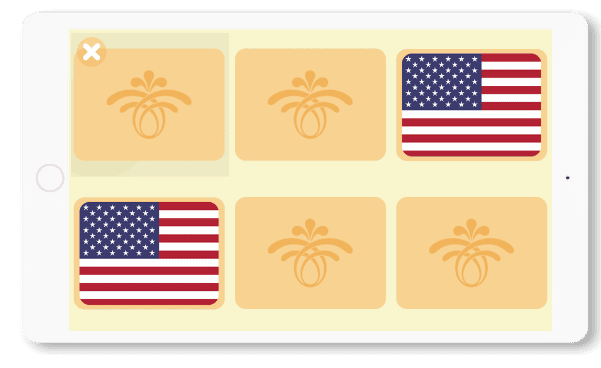
ColorMind
The game involving memorizing a sequence of colors is of great importance in a memory workshop for people with Alzheimer‘s disease. By engaging visual memory and the ability to concentrate, it stimulates cognitive functions and helps maintain short–term memory. In addition, this game offers an entertaining and interactive activity, thus promoting fun and engagement of the participants. Finally, it can be adapted to different levels of difficulty, providing an enriching and personalized experience for each individual.
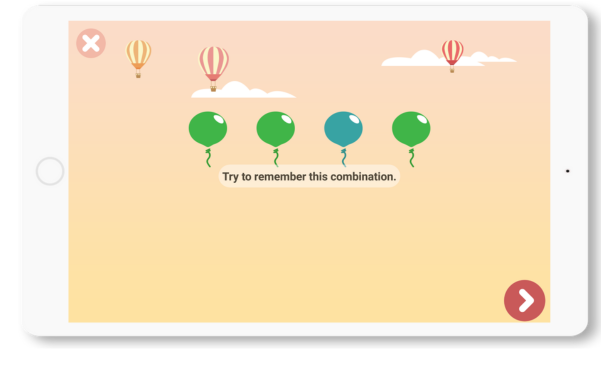
An adapted app for people with Alzheimer’s:
Scarlett
A brain training program with more than 30 memory games adapted for people suffering from mild to severe cognitive disorders, such Alzheimer’s, Parkinson’s and other neurodegenerative diseases.
- A simple interface,
- 3 levels of difficulty,
- No WiFi needed
Try the app for free for a week on Android and Apple tablets!

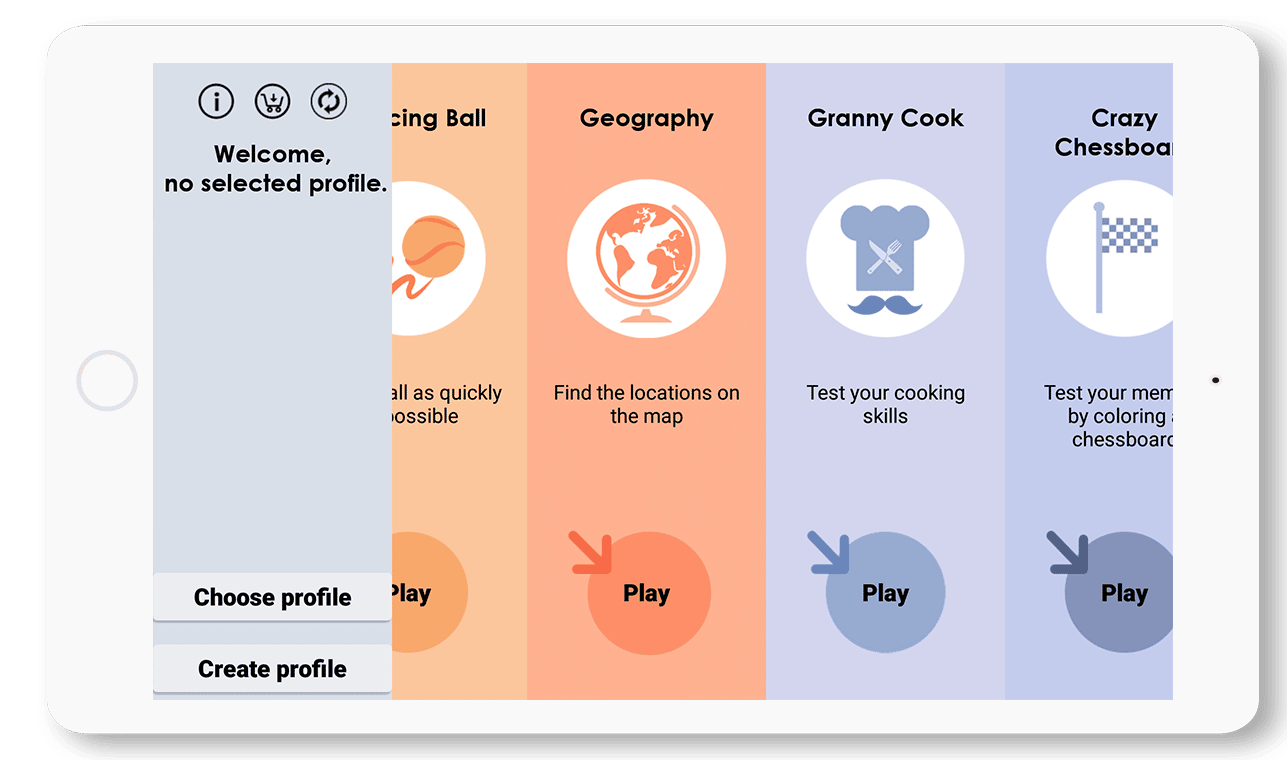
Here are the technical sheets of the games presented, with the cognitive functions stimulated by game
